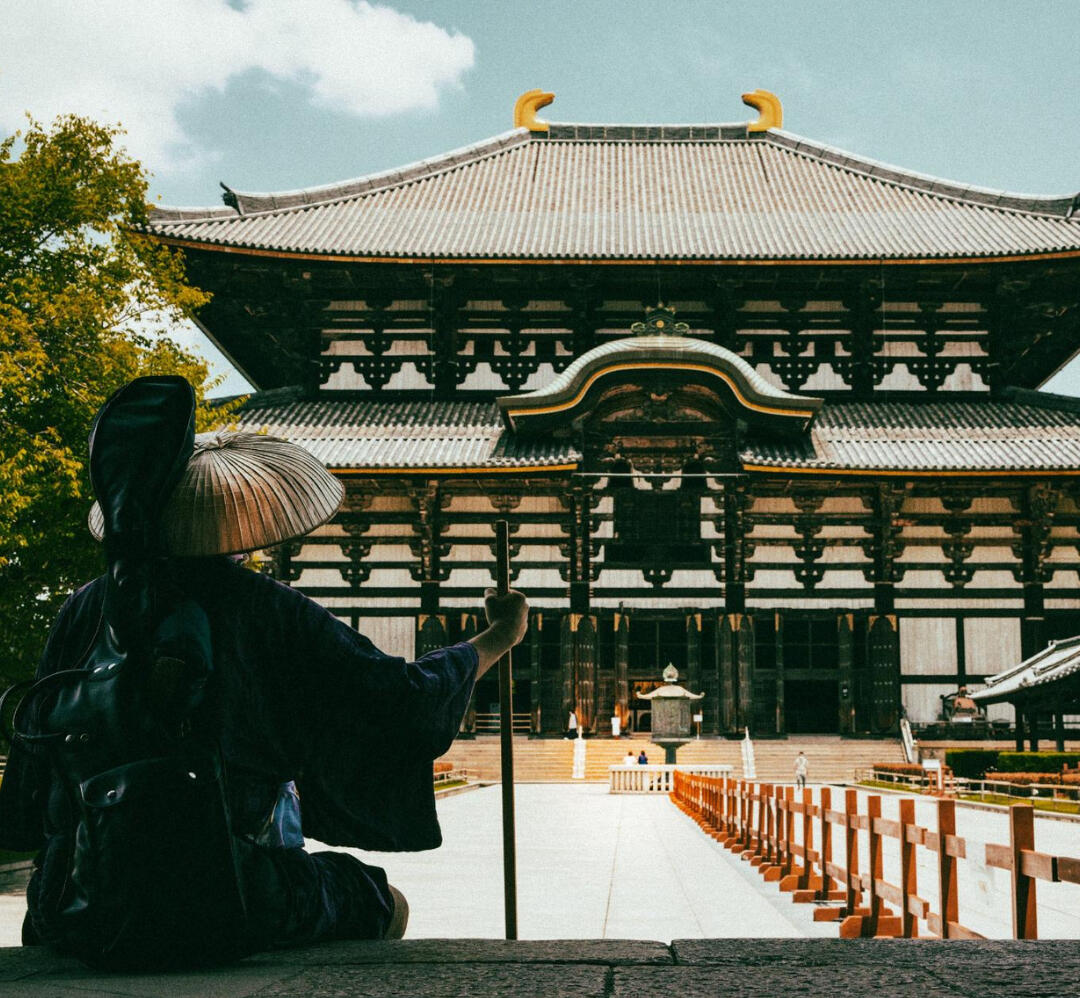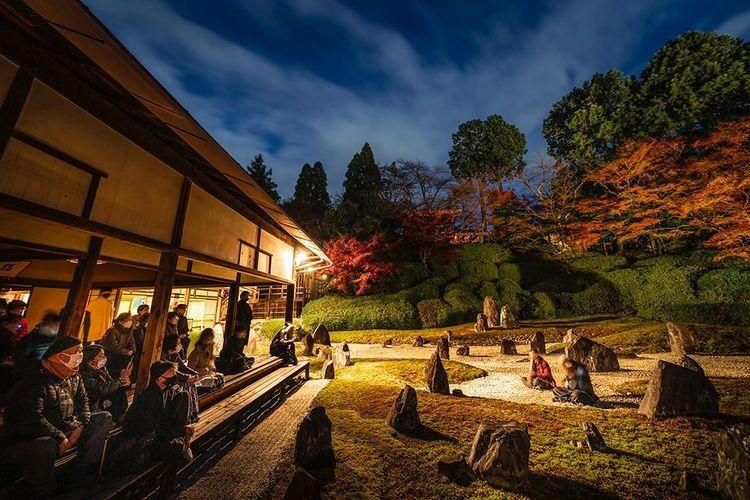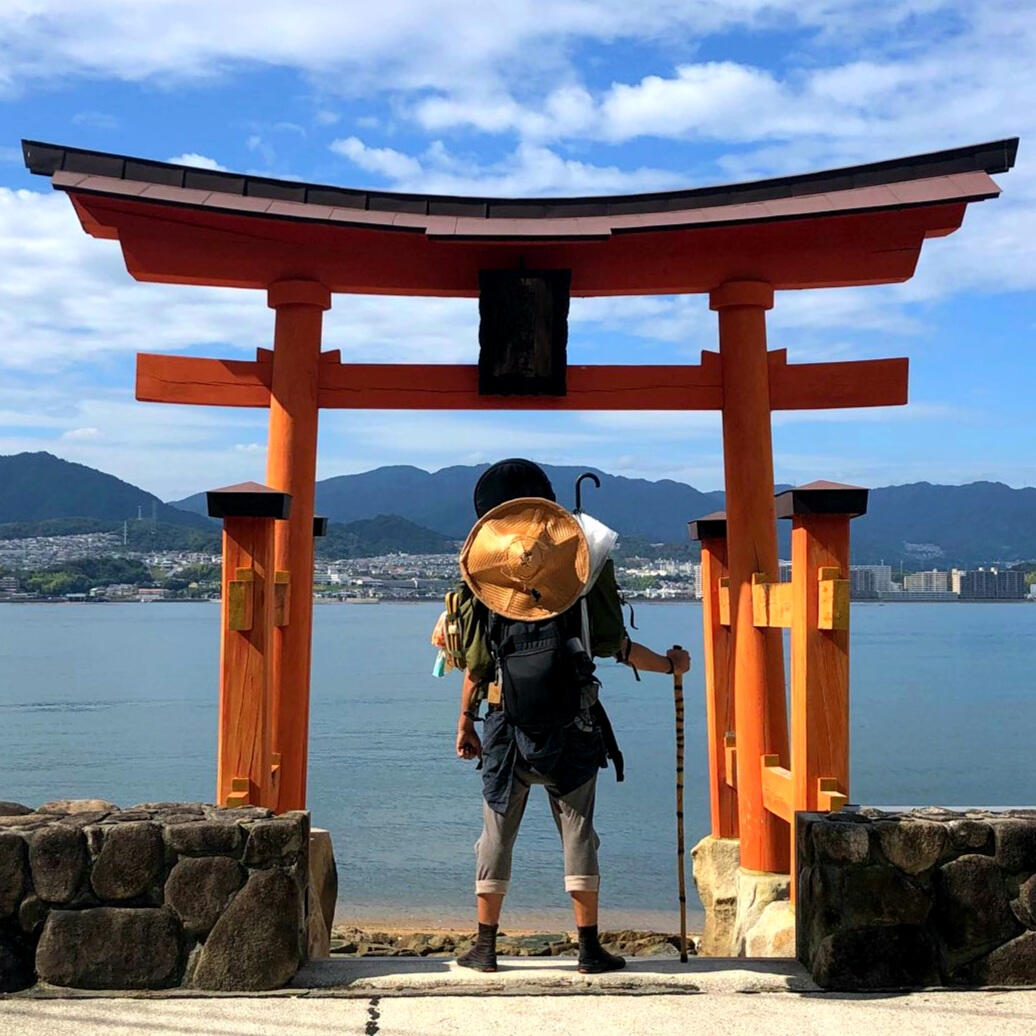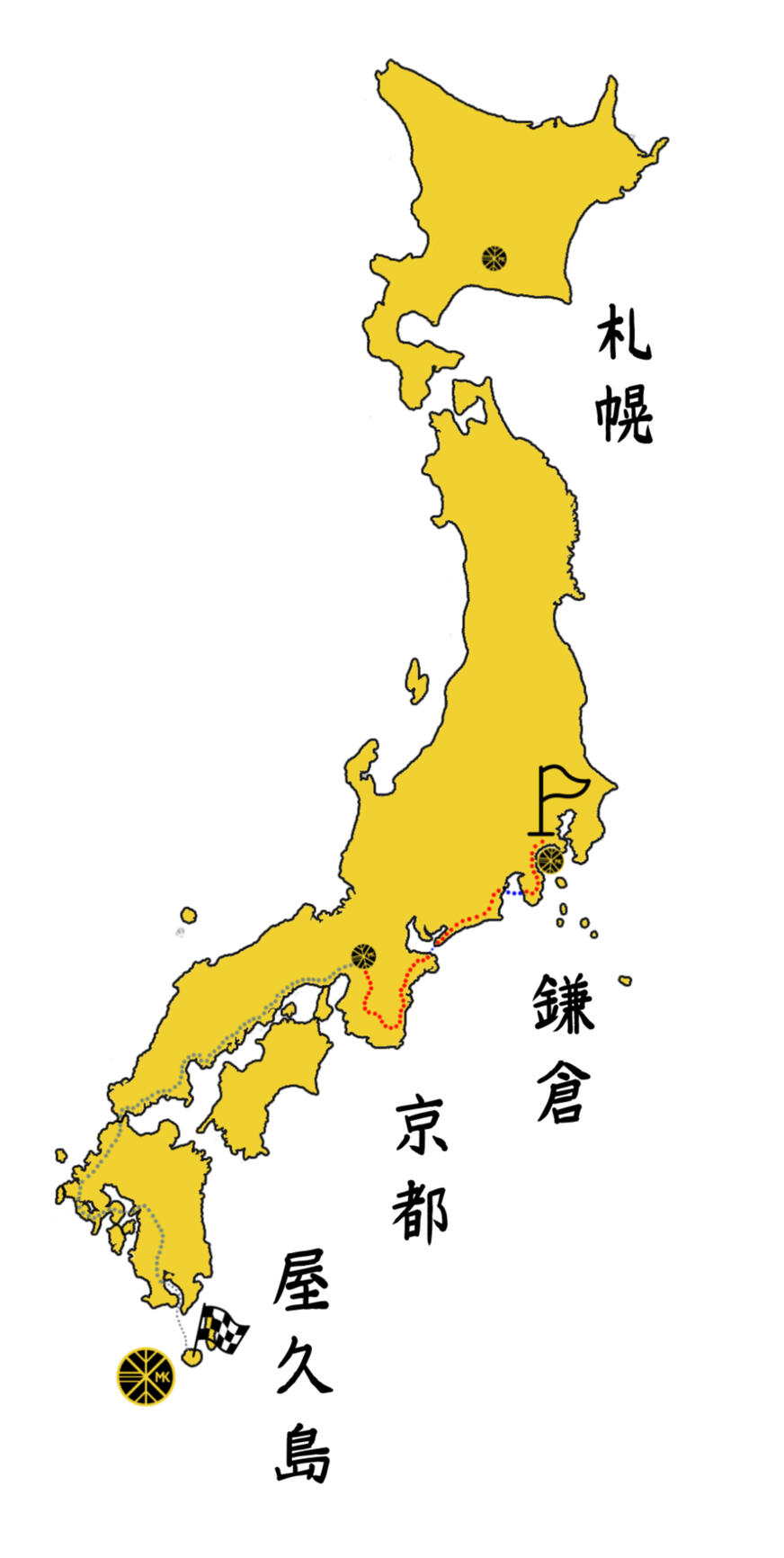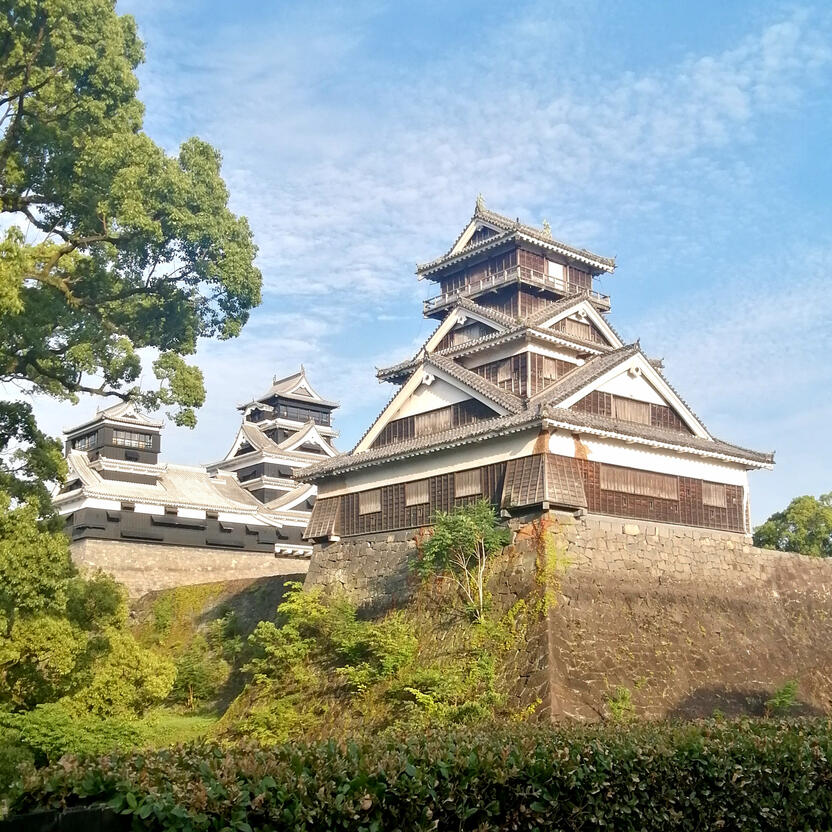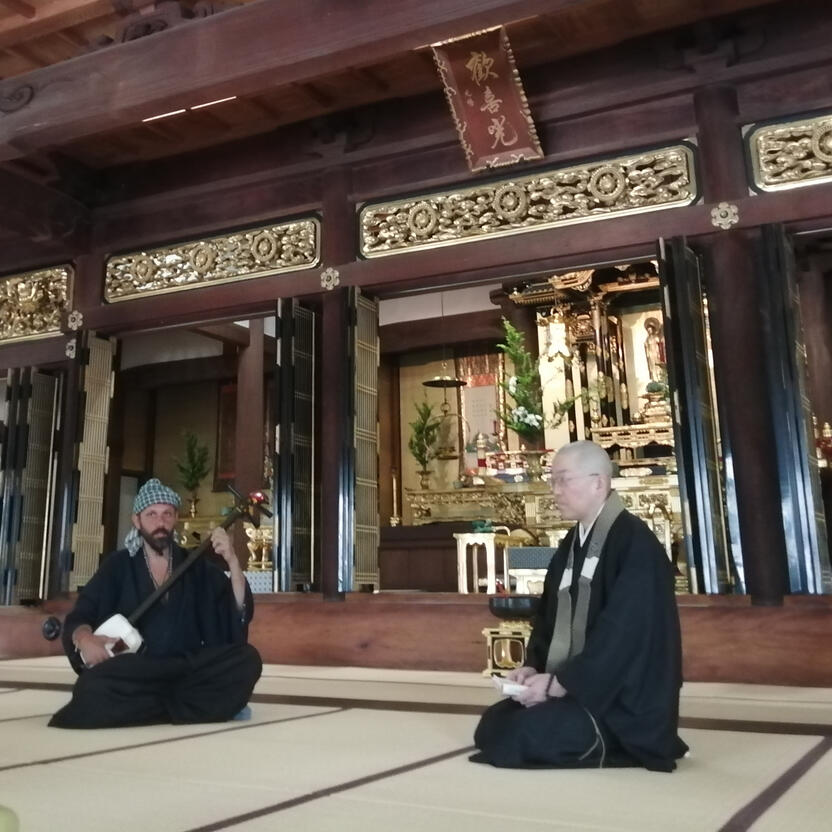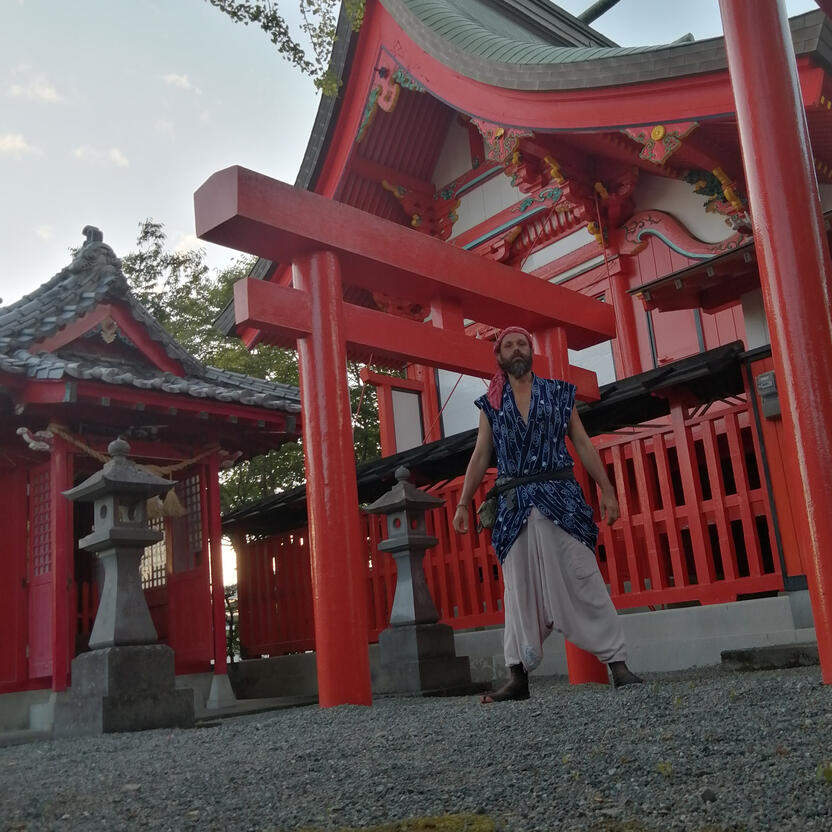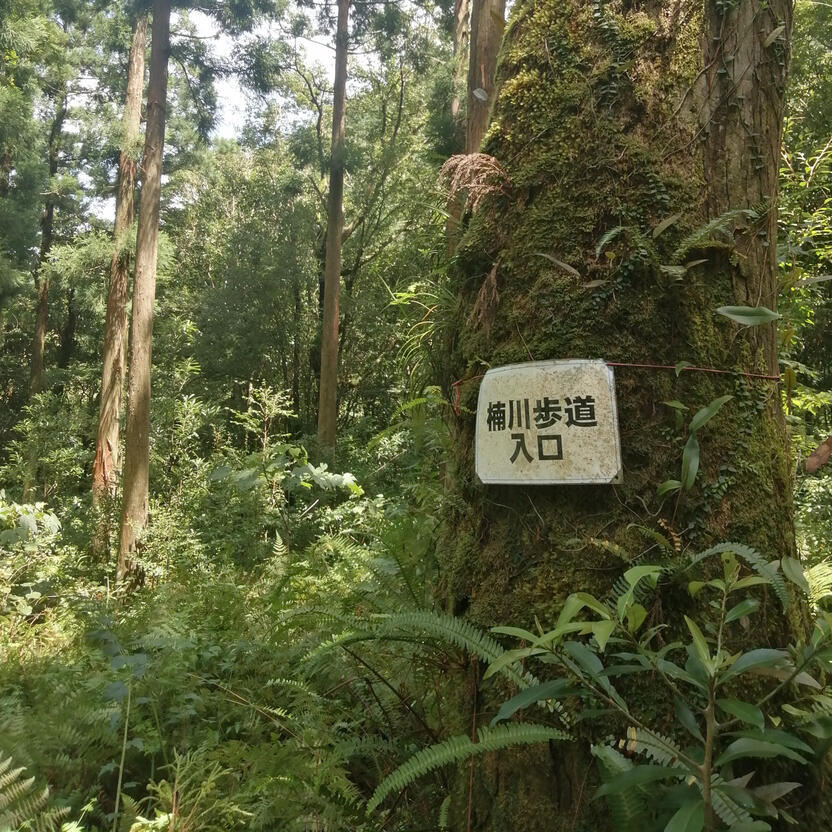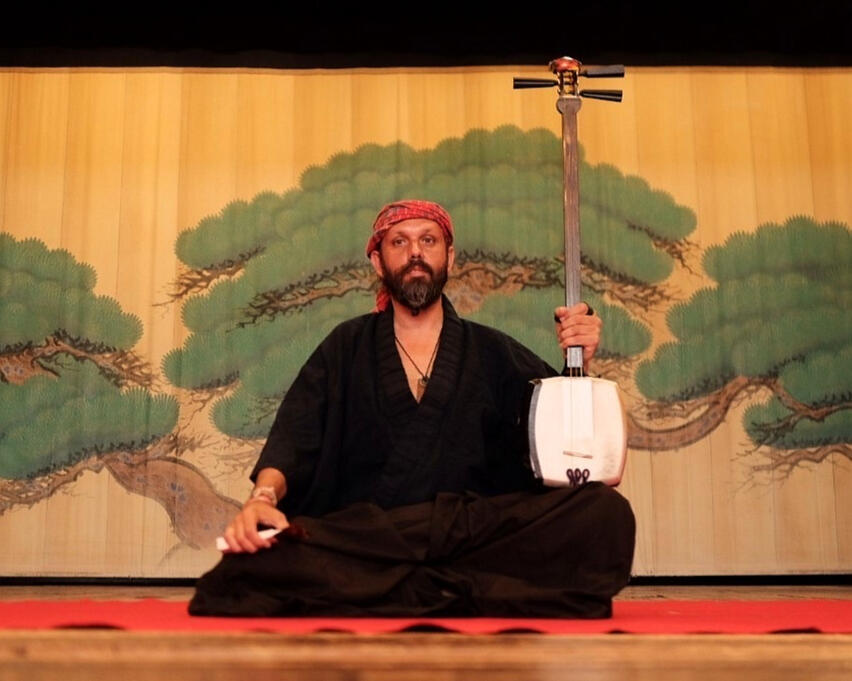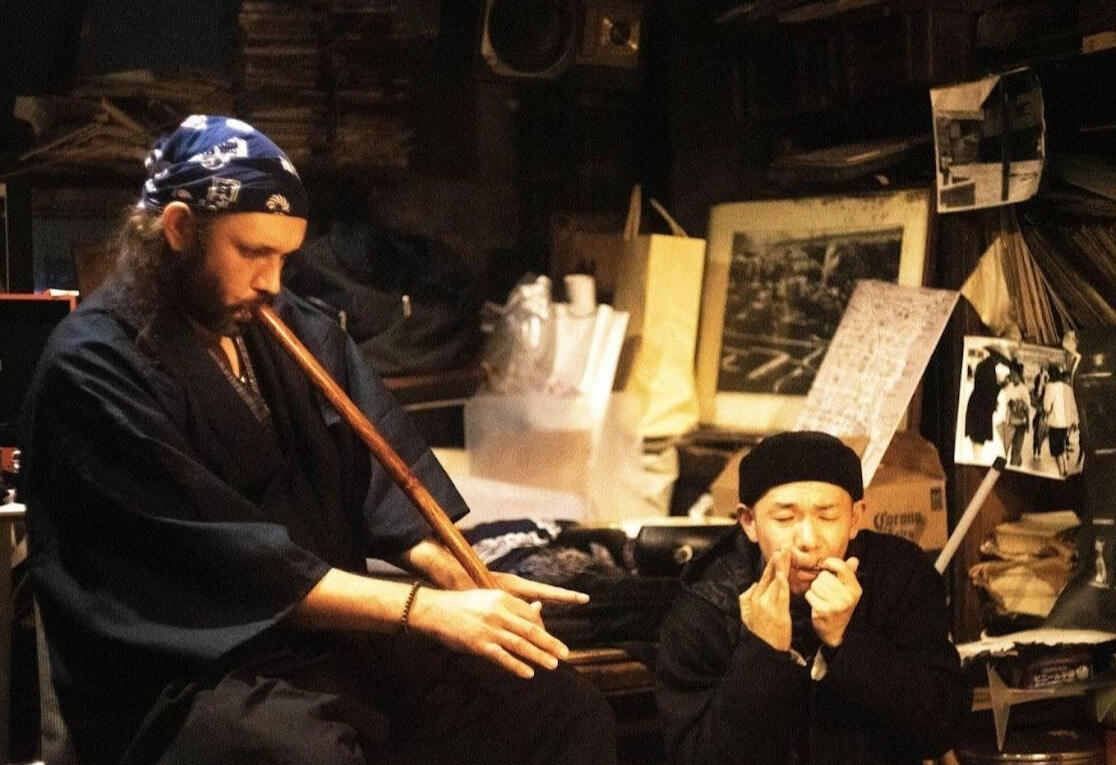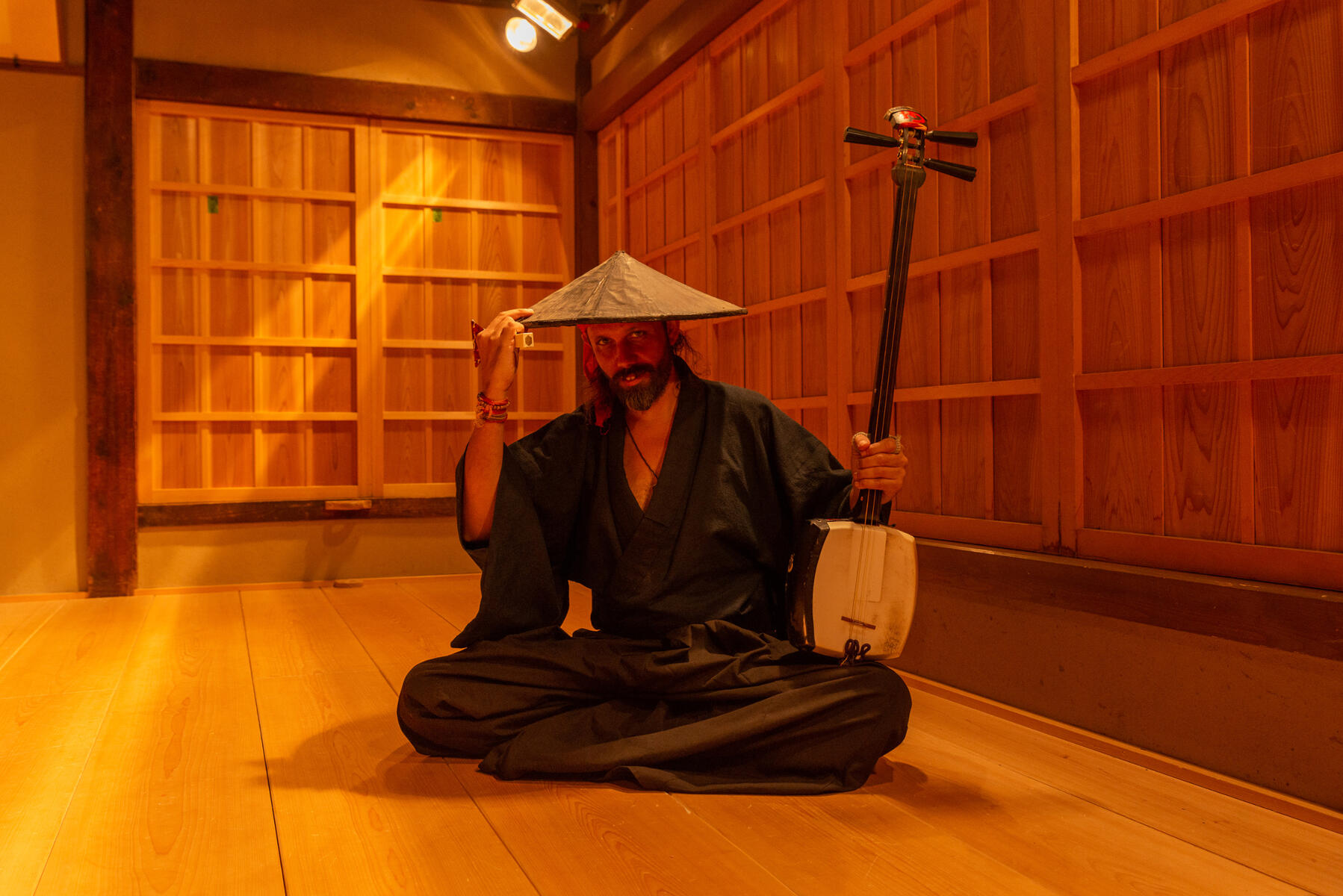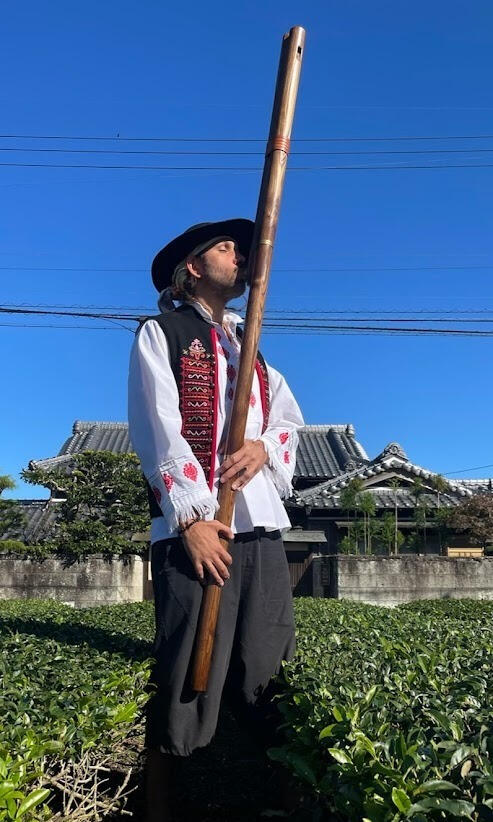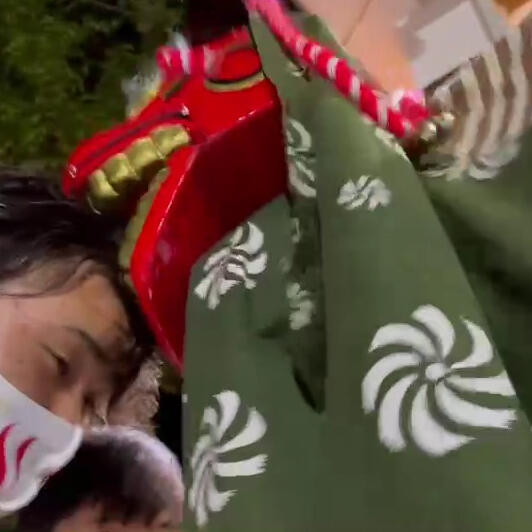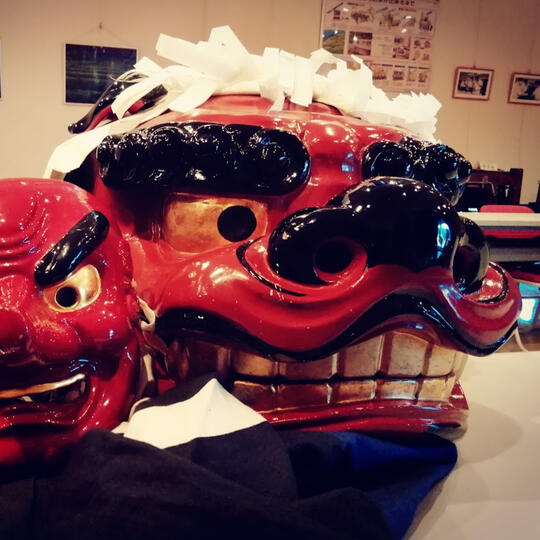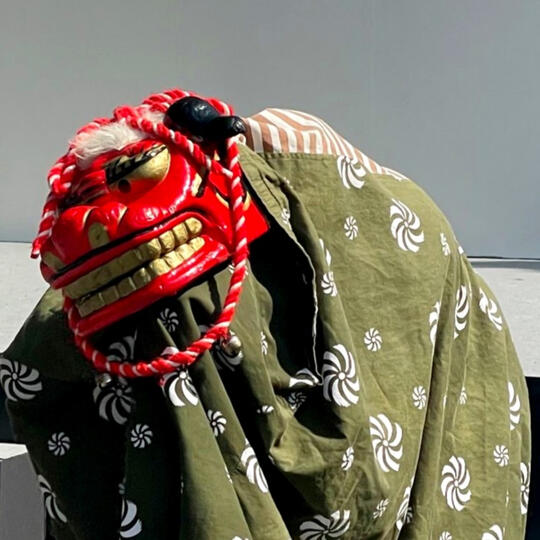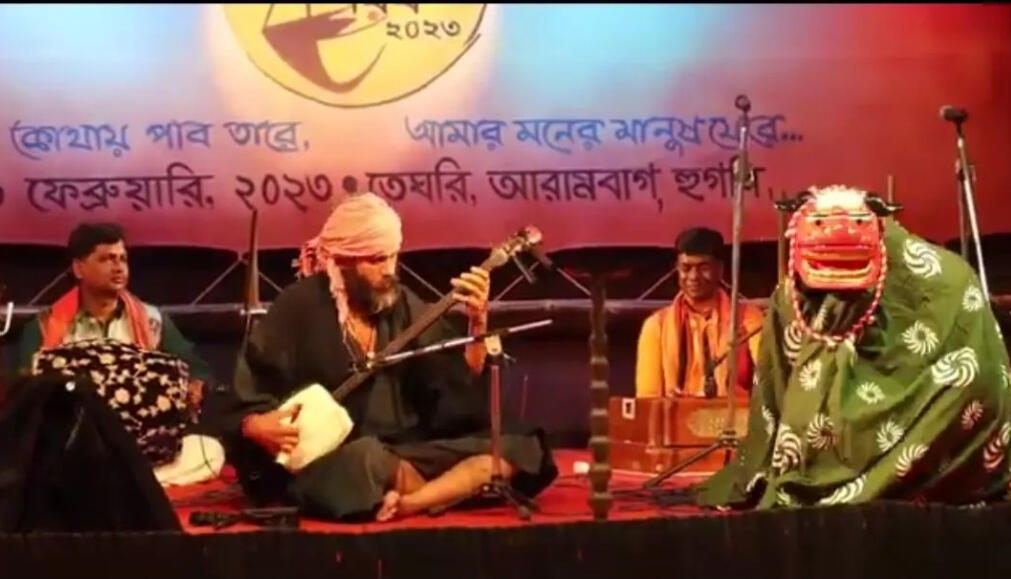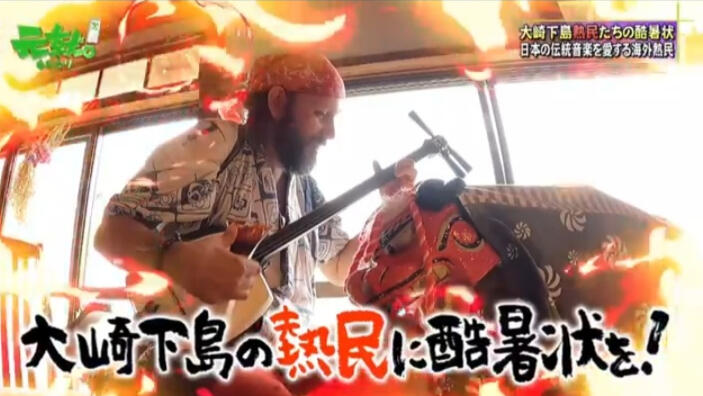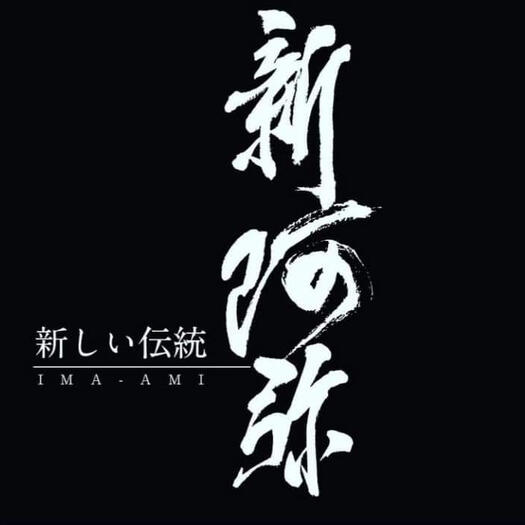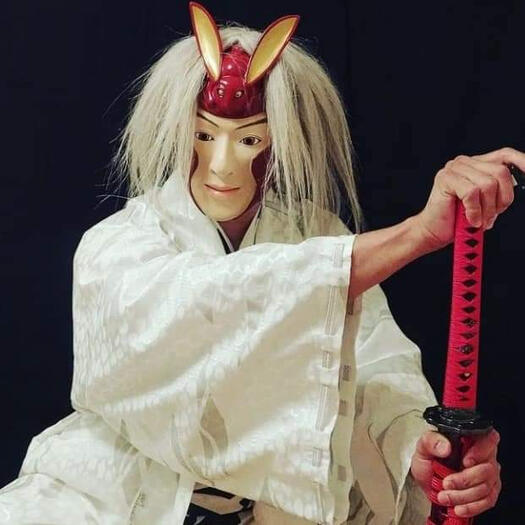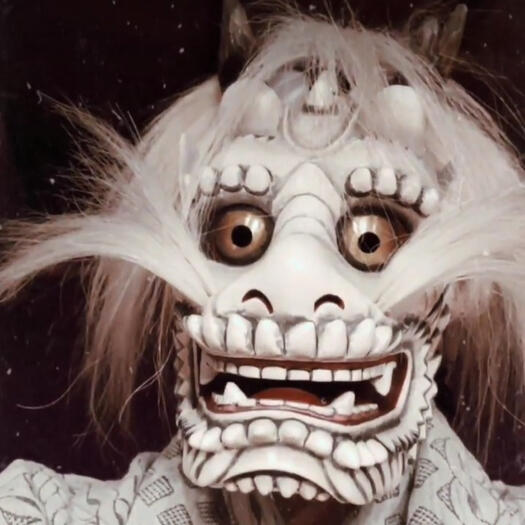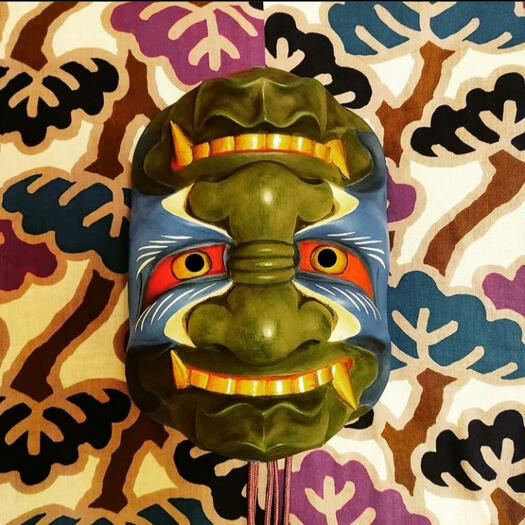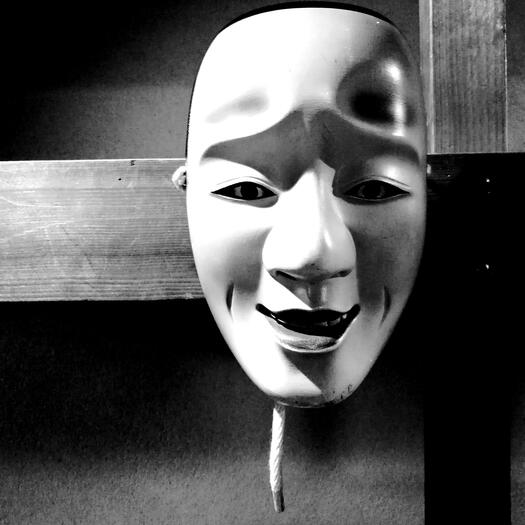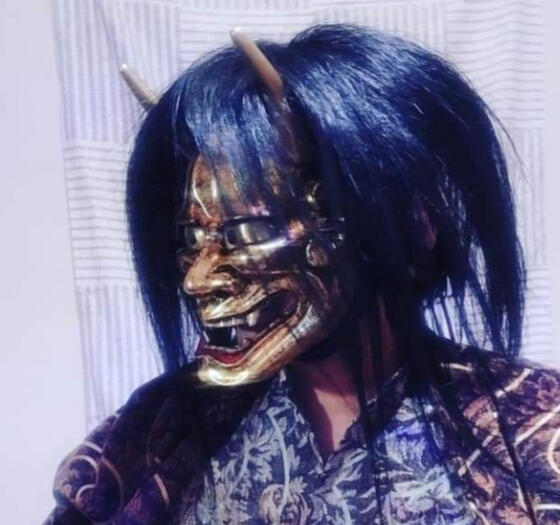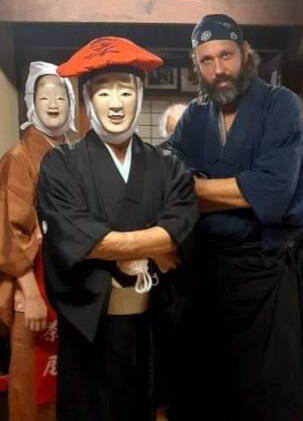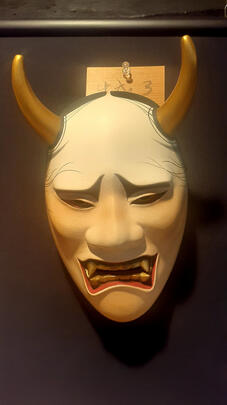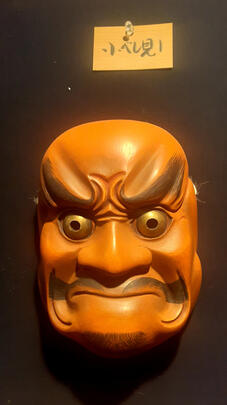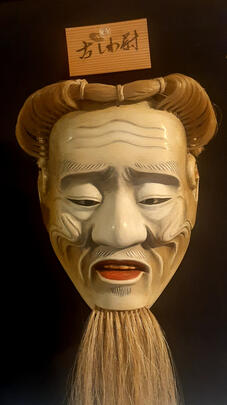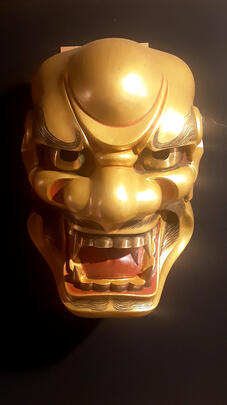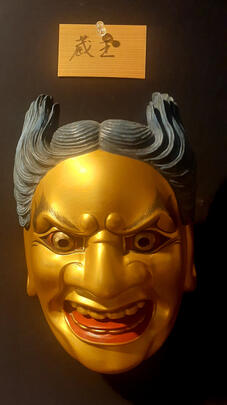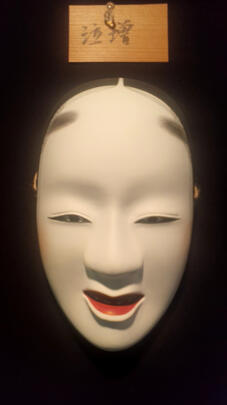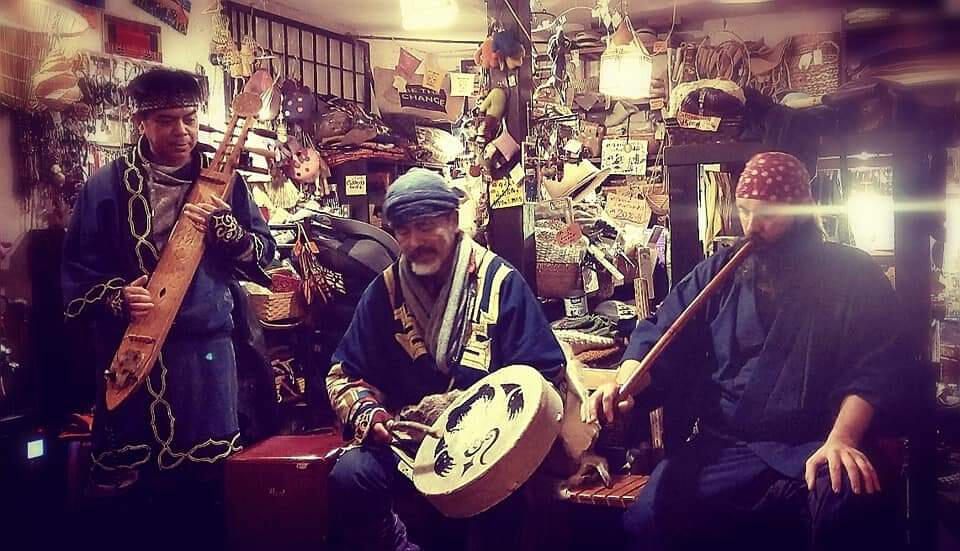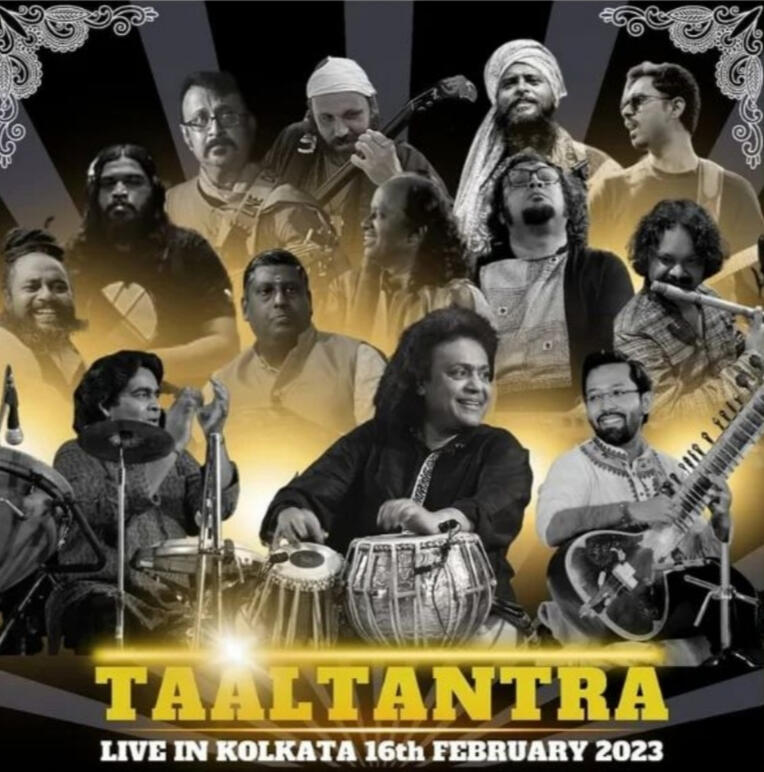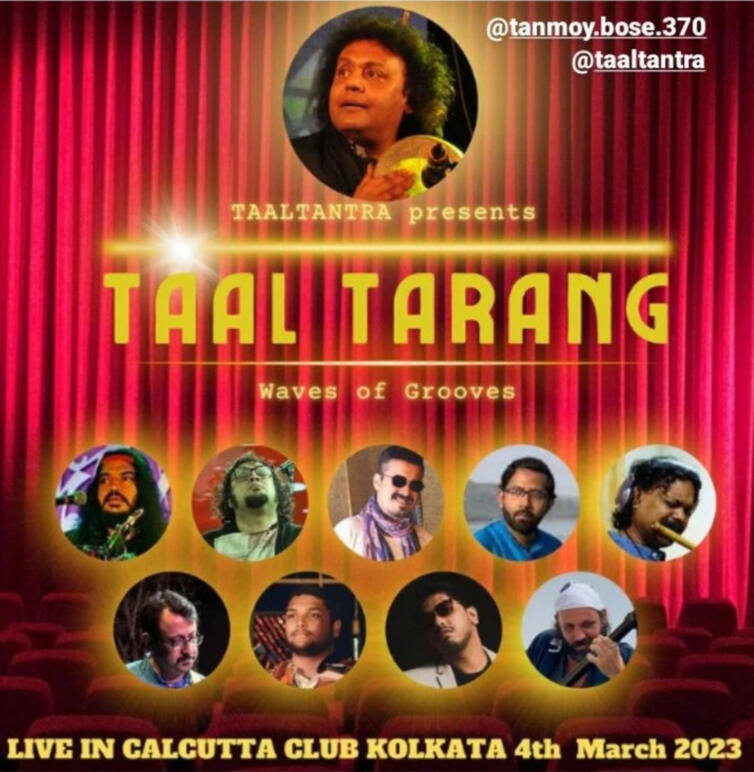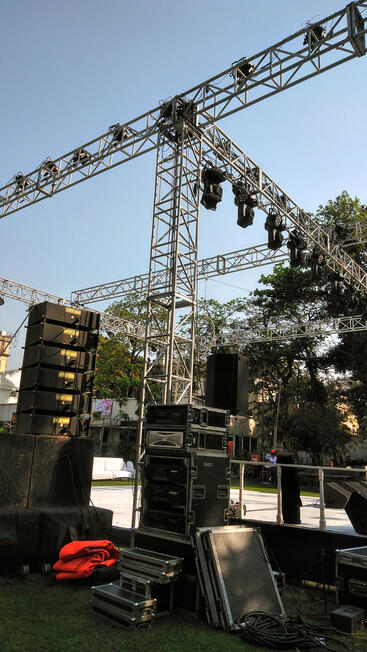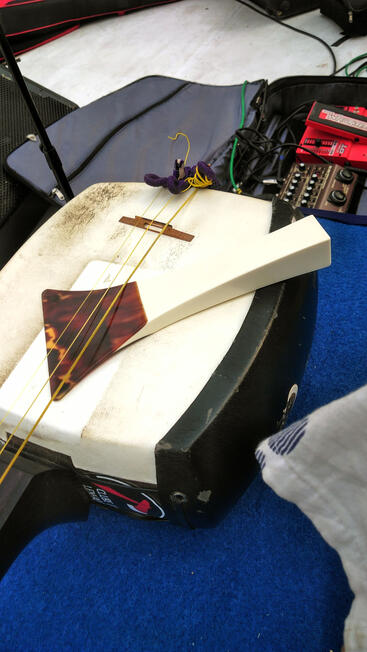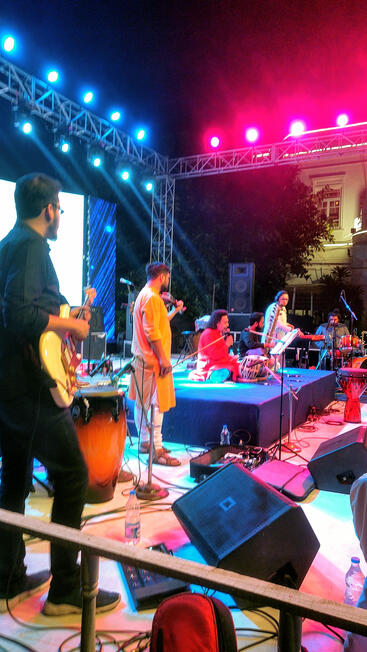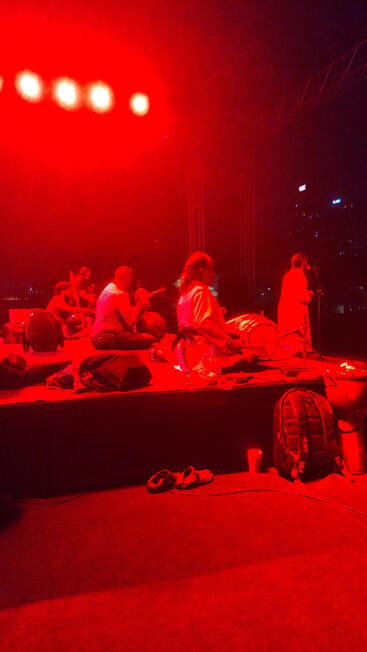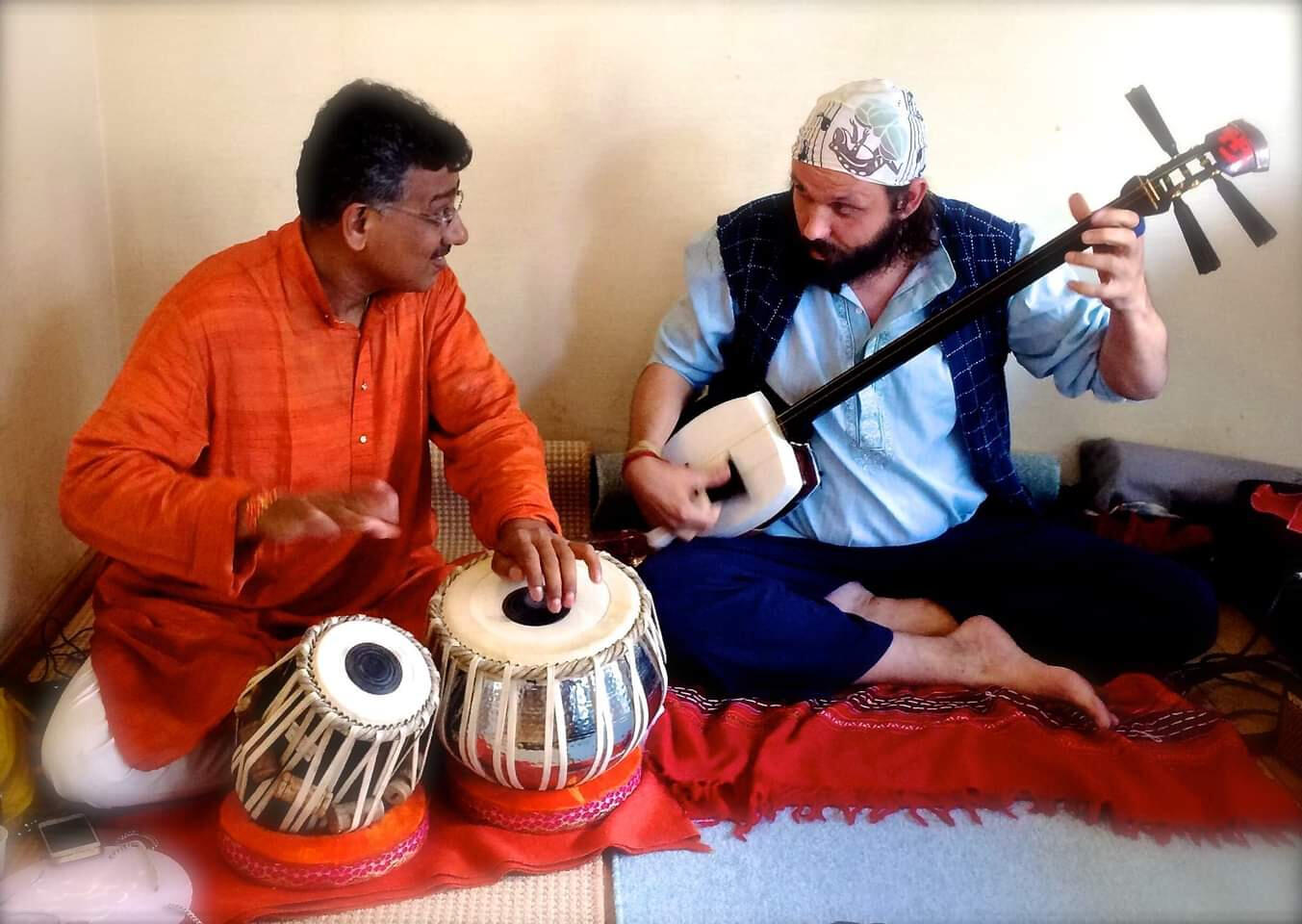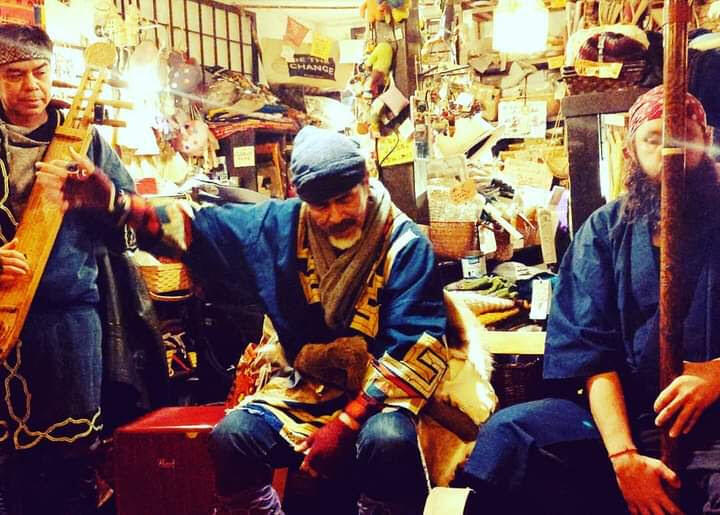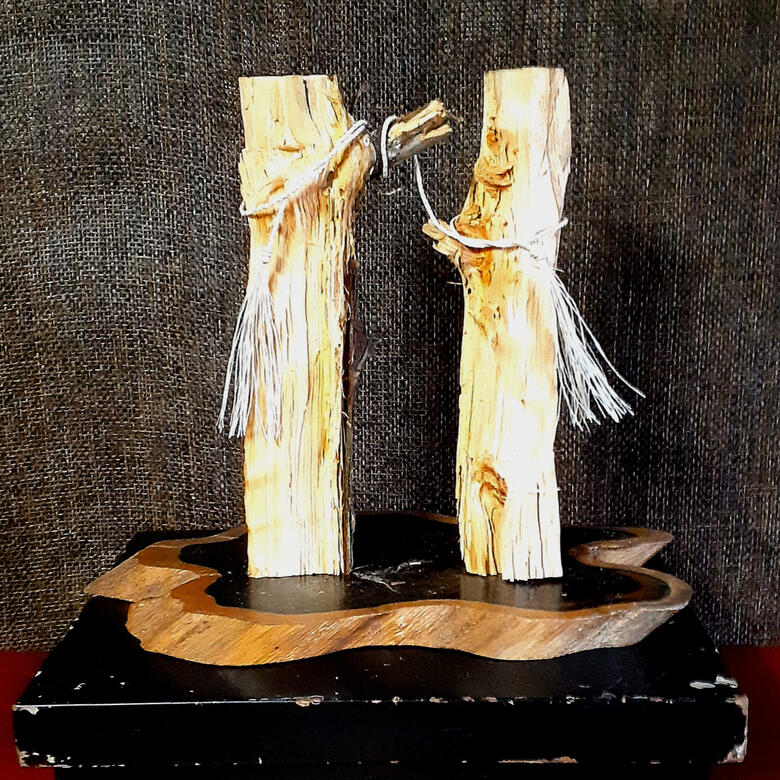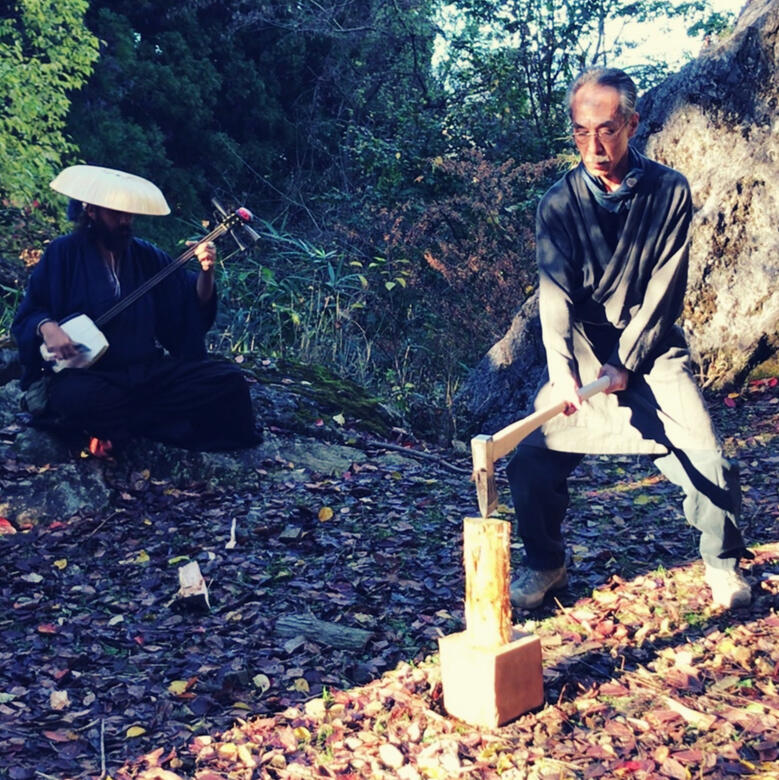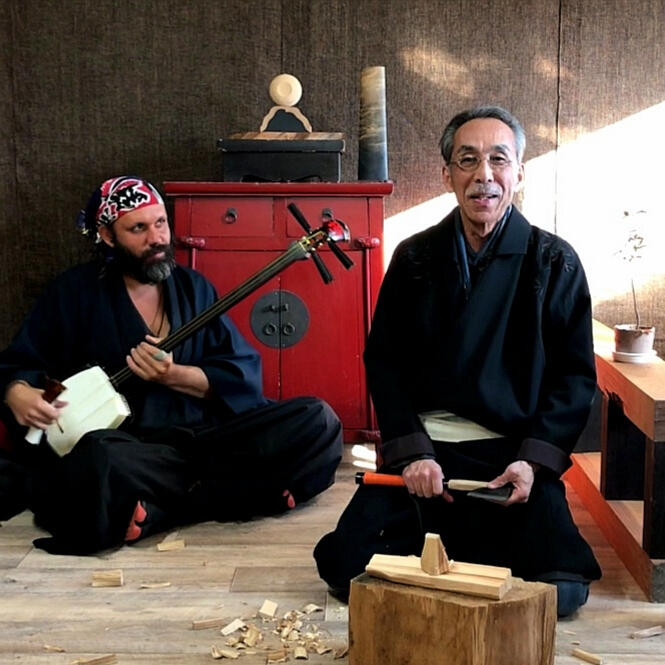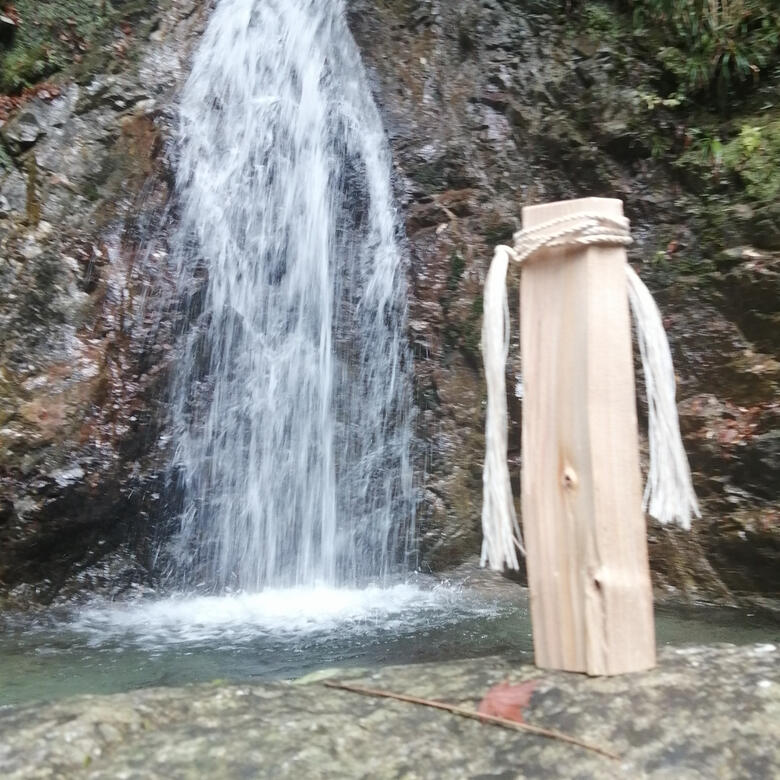About us
AFK DAO
away from known
creative tradition
3 years
walking pilgrimage
through Japan
Ethnomusicologist, musician, and Co-founder of Ethnopunk
Producer, shishimai dance performer and Co-founder of Ethnopunk
Kyogen dance performer,
traditional, neo-traditional, partner of Ethnopunk
Various projects, bands, artists, expanding creative connections.

Ethnopunk Project
Ethnopunk is a dynamic and multidimensional cultural project that explores and revitalizes traditional Japanese arts and folk traditions. This innovative project seamlessly blends ancient customs with contemporary expressions, resulting in a unique fusion.
Through captivating performances, interactive educational initiatives, and collaborative projects, Ethnopunk seeks to not only promote Japanese culture but also inspire a new generation to actively participate in the ongoing evolution and development of tradition. By celebrating the diversity found in regional folk cultures and festivals, Ethnopunk makes significant contributions to the preservation and evolution of Japan's rich artistic heritage. This vibrant journey transcends time, weaving together the roots of the past with the pulsating beats of the present, all while pioneering new and creative traditions.
(The Ethnopunk Manifesto was written and published in 2020,
just before the Journey across Japan was set to begin.)
Our project is a combination of activities that includes music and dance storytelling performances and events, helping to preserve the tradition, and supporting local artists and communities.We've had the privilege of performing at remarkable locations, ancient shrines, temples, and many local venues, and festivals. We've collaborated with talented artists, exploring the boundaries of traditional music and contemporary arts as well as taking part in various communal activities learning and supporting the rich and deep culture and heritage of Japan.
Following the Pilgrimage Steps of Ancient Japan:
To share our project and explore Japan's culture and history, we embarked on a unique journey. From 2020 to 2023, we walked across Japan, tracing the path from Kamakura to Yakushima. Along ancient roads, through cities, rivers, and mountains, we performed shamisen and shihimai, met people, and crafted our own stories. In our quest, we uncovered the ancient wisdom woven into Japan's rich cultural heritage, deepening our spiritual experiences.
To learn more about our journey, click here:
What Lies Ahead:
The journey is over now, we have reached our goal in Yakushima and returned to Kyoto, where our adventure continues. With a revitalized spirit and deep gratitude for the remarkable experiences that have influenced us, we are currently working on our debut album: "Seven Lucky Gods". Inspired directly by our journey, the music captures the essence of our adventures and serves as a testament to our experiences.
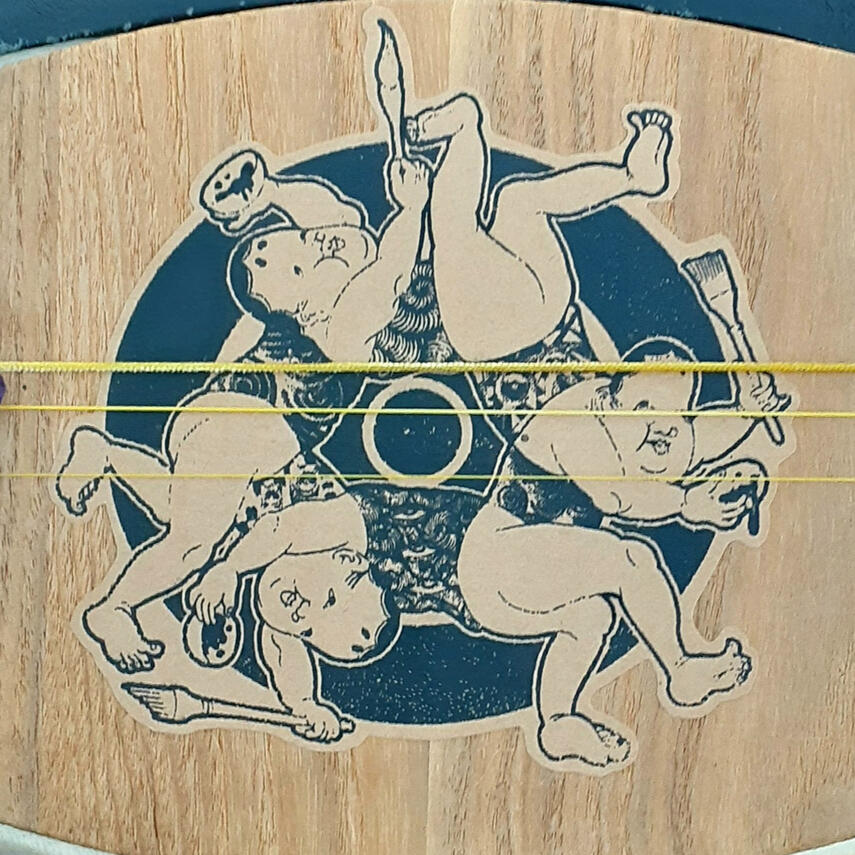
Join Our Movement:
The culmination of our efforts will be presented as a digital art package, an exclusive creation available only through our membership platform. This immersive experience, a true testament to the journey from tradition to innovation, will be akin to an OTT release, accessible to our dedicated supporters.Join us at this pivotal moment as we celebrate creativity, tradition, and the enduring flow of culture. Stay tuned for updates, and let's craft art that transcends boundaries and resonates with the soul.
We're eager to share the Ethnopunk cultural movement with fellow musicians and creators, inspiring artistic development and new projects. To support our cause and help sustain Japanese traditional arts, we're in the process of establishing AFK NPO, with a base in Kyoto. By becoming a member, you can be part of our mission to spread the importance of creative tradition and its evolution, not just in Japan but worldwide.
Become an Ethnopunk Member
Ethnopunk Manifesto
- Away from the Known -“ Creating the Future needs Breaking Away from the Past ”
Cultural changes are constant, with some cultures becoming extinct. Today this is consequent to factors such as globalization, the Internet, as well as quantum leaps in circulation and interaction of people following modern lifestyles. Our world is turning into a uni cultured homogeneous place lacking cultural diversity. People absorbed by modern society are forgetting their roots and traditions. Cultural identities are becoming diminished.Ethnic music is also being affected by this modern global-scale phenomenon. Songs, music styles, and techniques, passed down from one generation to the next, are becoming forgotten and lost. Traditional music instruments are being replaced by modern ones and the unique expressiveness in ethnic music is disappearing.Those who are concerned with bettering this situation, namely musicians, artists, and musicologists, are trying to find ways to preserve the ethnic music culture. The majority of traditional musicians and artists are placing focal attention on attaining, representing, and preserving ethnic music styles and performances.The world, the environment, people, habits, and customs are always undergoing changes. Culture and music are no different, also with constant changes. The only thing that doesn’t change is the fact that everything always keeps changing.We are all different. We think and feel differently. Therefore our artistic outcome should be diverse, unique, and individual. The preservation of tradition is preventing the growth and advancement of individual expression. The tradition becomes static and its evolution becomes interrupted. Past traditions need to be understood and respected. Efforts must be made to keep each tradition alive by maintaining, developing, and expanding it. Creating rules, various principles, and requirements is not what helps nourish tradition.Learning traditional art, skills, and techniques is no doubt essential but such knowledge must be used to create our own stories, songs, new techniques, and new music styles. We need to be authentic, exploring and experimenting with new musical expressions, styles, and approaches. All traditions are created by way of experiments and innovations. Various interactions, mixtures, and mutations of different traditions are happening all the time. Instead of looking at the negative aspects of globalization, we can think about this as an actual opportunity for even more unique interconnections, diverse authentic expressions, and creative cultural transformations.Ethnopunk is about such innovations and transformations. It depicts a pathway to discovering new styles, breaking away from the past, away from the known. Ethnopunk is creating ethnic music of the present and not presenting the music of the past. Great effort is made to study, grasp, and master the musical traditions. However, the acquired skills, techniques, and performance practices are employed and unconventionally applied in searching for an authentic, personal voice. Ethnopunk encourages open collaborations. It functions as a vehicle for supporting other communities, offering new ideas, making aware of the importance of artistic development, as well as helping to cultivate new art forms and cultural values."Ethno as in ethnic, world music and Punk representing creative freedom."Ethnopunk symbolizes the evolution of ethnic music. It recognizes opportunities for new experiments and possibilities within music. It makes use of the access to vast information and knowledge available worldwide and creates in a free manner without rules and authority but with self-discipline, skill, and capability.An ancient Slavic “Tree of Life” symbol is applied as a motif on the logo of Ethnopunk, wherein the roots illustrate traditional knowledge of the past, while the branches the growth toward the unknown.“Ethnopunk Represents an Inspiring, Endless Metamorphosis, the Music of Now, a Creative Tradition.”
Ethnopunk Journey
The Journey: MK and Hari embarked on an incredible pilgrimage, traversing across ancient Japan over three years.The mission: Spread the magic of shamisen music and shishimai dance, build connections, research, and revive Japan's ancient culture, diving deep into tradition, seeking authentic expression, and give birth to a brand-new creative tradition!
Our adventure began on June 21, 2020, in Kamakura, with a mission to embark on walking pilgrimage to Yakushima.Along the way, we performed traditional music and dance shows, creating a unique fusion of cultures. Our performances feature traditional Japanese shamisen music, Slovakian fuyara flute music, and the mesmerizing shishimai dance.Over the past three years, we've journeyed through Kanagawa, Shizuoka, Aichi, Mie, Wakayama, Nara, Kyoto, Osaka, Kobe, Okayama, Hiroshima, Yamaguchi, and then Kyushu; Fukuoka, Nagasaki, Kumamoto, Kagoshima and reached the final destination, the Jomon Sugi tree, in Yakushima.
Enjoy some of our videos on YouTube that offer glimpses into the adventures we've had along the journey.:
Our initial aspiration is to immortalize this extraordinary adventure in the pages of a captivating book, weaving together the tales and experiences we've gathered throughout our travels.
In conclusion, our epic journey from Kamakura to Yakushima, spanning over three years, has been an incredible adventure filled with cultural fusion, personal growth, and unforgettable experiences. From performing traditional music and dance shows along the way to immersing ourselves in the diverse landscapes and cultures of Japan, each step has been a testament to the power of human endurance and the beauty of connection. As we prepare to share more about our journey very soon, including an interactive map, location information, stories of the people we've met, the history we've encountered, and many more adventures, we invite you to join us on this remarkable expedition of discovery and inspiration.
Stay tuned for the next chapter of our adventure!
MK エムケイ
ETHNOPUNK CREATIVE DIRECTOR
Ethnomusicologist, musician,
composer, music producer
"MK's Musical Journey: An Artist's Profile"
MK's professional journey is a fascinating fusion of diverse musical genres and cultural experiences. Starting as a guitarist in a Slovak Punk rock band, MK's journey took him to Australia, where he transitioned to become a bass guitarist in an Aussie pop-rock ensemble. Continuing his musical exploration, MK immersed himself in piano studies and pursued advanced musical education, specializing in classical music and composition, at CIT University in Cork, Ireland.A pivotal moment in MK's career occurred when he received a Shamisen as a gift from a craftsman in Japan, redirecting his musical trajectory. Subsequently, MK graduated with a master's degree in Ethnomusicology at UCC, Ireland, with a focus on Tsugaru Shamisen and a groundbreaking project titled "CREATIVE TRADITION."
Under the tutelage of Tsugaru shamisen master Kojin Sasakawa, MK refined his skills, earning recognition for his innovative Tsugaru shamisen style at the Hirosaki city competition.
MK's musical pursuits extend beyond a singular style, as he explores various Shamisen traditions such as Nagauta, Jiuta, and Minyou. Additionally, MK delves into the music of other cultures, with a particular focus on India. Having traveled extensively and performed throughout India with accomplished musicians, MK conducts research to adapt Indian music to the unique realm of the shamisen. The pinnacle of his career included a collaboration with Grammy award-winning South Indian Ghatam artist Vikku Vinayakram in Chennai, India, in 2019.
In 2019, MK embarked on The Jugalbandi tour across Europe with Indian percussionist Tansen Shrivastava, showcasing their talents in Slovakia, Czech Republic, France, and Holland.From 2020 to 2023, MK undertook a remarkable 3-year walking music pilgrimage across Japan, titled FOLLOWING PILGRIMAGE STEPS OF ANCIENT JAPAN. The mission aimed to spread the magic of Shamisen music and Shishimai dance, build connections, conduct research, and revive Japan's ancient culture.In 2023, MK returned to India and performed on a prestigious stage with the well-known fusion band “TaalTantra” and its leader Tanmoy Bose, in the Indian cultural capital, Kolkata.Currently residing in Kyoto, MK dedicates his time to in-depth research on Japanese traditional art and culture. He actively participates in events, workshops, and cultural activities while working on recording his debut album, Seven Lucky Gods, reflecting his recent journey across Japan. Drawing inspiration from encounters and Japanese culture, he seeks his authentic musical expression. Additionally, he is engaged in writing numerous articles and texts, sharing his experiences and acquired knowledge.MK's journey reflects a deep commitment to musical exploration, cultural exchange, and the revival of ancient traditions, making him a unique and influential figure in the world of music.
Shamisen 三味線
The shamisen is a traditional Japanese stringed instrument with a distinctive sound. It has a thin neck and a drum-like body covered with skin. Players use a plectrum called a bachi to pluck the strings. The shamisen is commonly used in various traditional Japanese music genres, including folk songs, classical music, and kabuki theater accompaniment.For more than a decade, MK has dedicated himself to the study of shamisen under the tutelage of numerous masters spanning different schools and styles. His journey has led him to immerse in the prestigious and fiercely competitive Tsugaru shamisen championships, alongside intensive training in the ancient melodies of Jiuta shamisen, Nagauta, and various other styles.Through experimentation and study, MK is delving into various musical genres, with a special focus on Indian classical and folk music, Ancient Slavic Music, and other world ethnic performance styles.
Fuyara フヤラ
Fuyara is a unique wind instrument originating from central Slovakia, renowned for its deep, meditative timbre and distinctive design. Standing between 160 to 200 cm in length, the fuyara produces rich tones through its intricate overblowing technique, allowing players to explore a diatonic scale with just three finger holes.Traditionally played by shepherds for recreation, the fuyara has now found its place on stages at folk festivals and gatherings worldwide. Recognized by UNESCO for its cultural significance, the fuyara continues to captivate audiences with its mesmerizing sound and rich heritage.
MK Fuyara
meditation music videos:
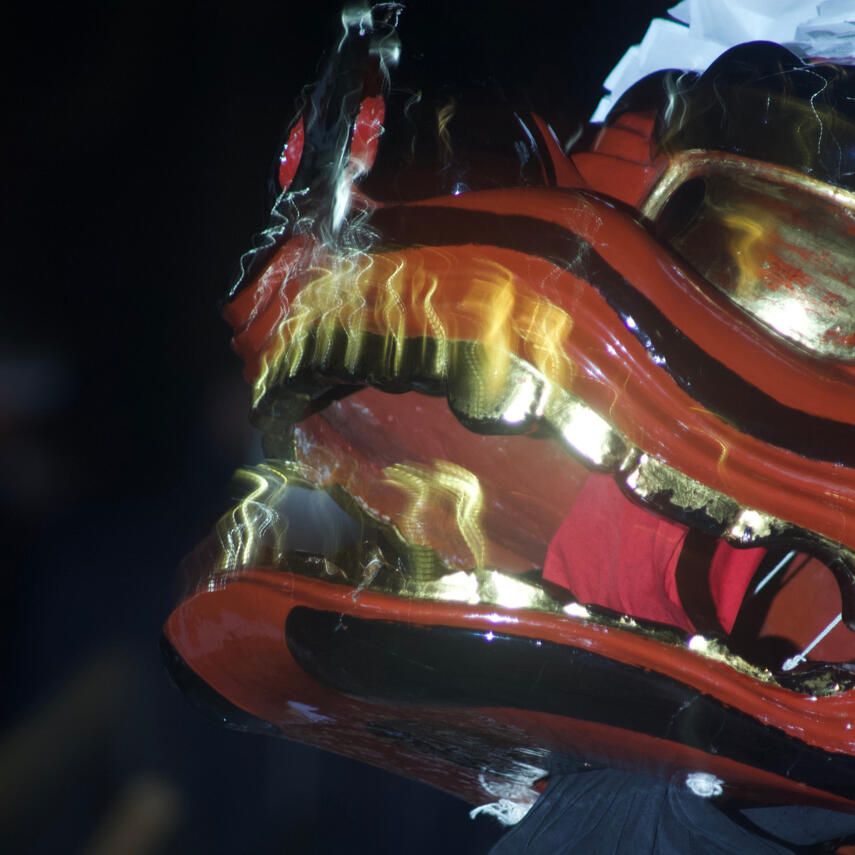
HK 黒川ハリ
Meet HK, the visionary co-founder and producer of Ethnopunk, a pioneer at the intersection of technology, blockchain, and the timeless beauty of art traditions. Together with MK, they started the Ethnopunk project in 2020. HK seamlessly connects two diverse realms—the world of cutting-edge technology, and blockchain, with rich traditions and music.HK serves as the driving force behind Ethnopunk, presenting it to wider audiences in Japan, Thailand, and India. By bridging the walking tradition of Camino de Santiago and Japanese shamisen Bosama/ Goze & Komuso shakuhachi players' walking journeys, with Kumano Kodo and Tokaido pilgrimages. This is what has inspired the epic "Following Pilgrimage Steps of Ancient Japan," a 3-year walking adventure of MK & HK across Japan from Kamakura to Yakushima.
His commitment to Ethnopunk is not merely about coexistence; it's about creating a synergy where technology enhances, rather than diminishes, the timeless beauty of cultural expressions.Not just a co-founder, HK is a Shishimai dancer, his warrior spirit transformed through dance under MK's guidance. Alongside MK's shamisen, they've graced public stages, uniting tradition and innovation in a mesmerizing display.Join HK on this transformative journey, where the old meets the new in a harmonious dance of cultures and technologies.
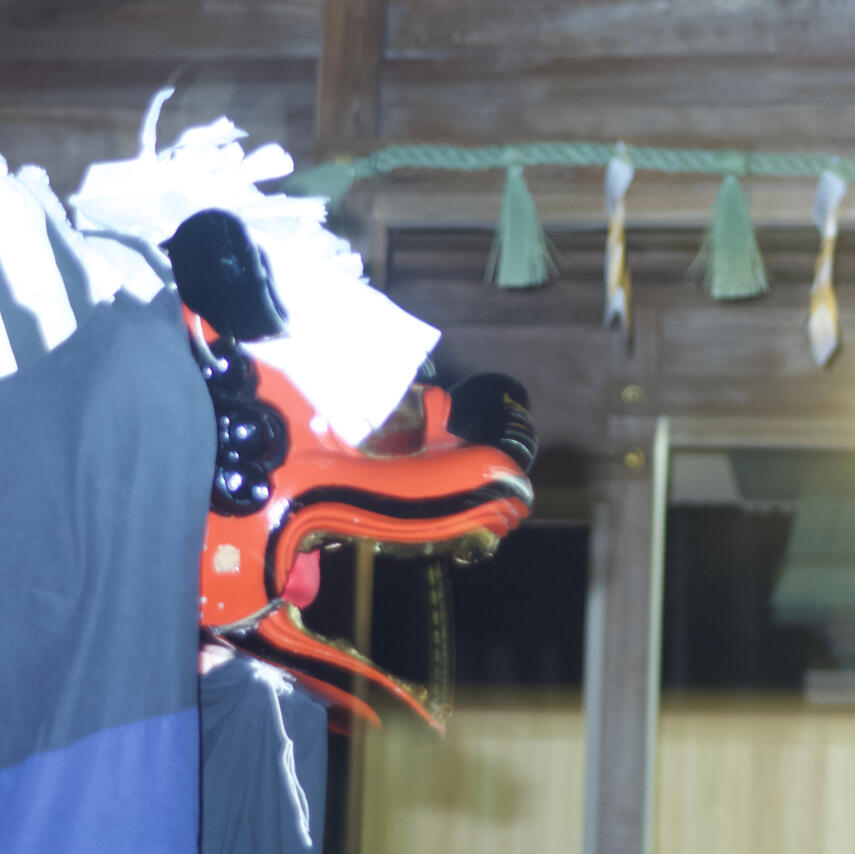
Shishimai 獅子舞
Shishimai, also known as the Lion Dance, is a traditional Japanese dance performed during festivals and celebrations. Dancers wear elaborate lion costumes and masks, typically consisting of a wooden headpiece with a movable mouth and eyes. The dance is believed to bring good luck and ward off evil spirits.
Ethnopunk Shishimai
Ethnopunk Shishimai has showcased its performances on numerous stages across Japan, including Kyoto, Osaka, Kobe, Hiroshima, Kokura, and beyond. Additionally, Ethnopunk Shishimai has ventured internationally, collaborating with traditional Indian Baul musicians from West Bengal. Notably, they participated in the prestigious Baul Festival in Arambagh, West Bengal, in 2023.
Ethnopunk has directly collaborated with these traditional institutions of the Kogen:Ise Kagura Tochihara, Mie, Kawazoe Shrine
Himeji Shihimai Hyogo, Fukujo Temple
Kubi Shihimai Kubi, Osaki-Shimozima
Ima-ami Shishimai Kyoto, Haradani
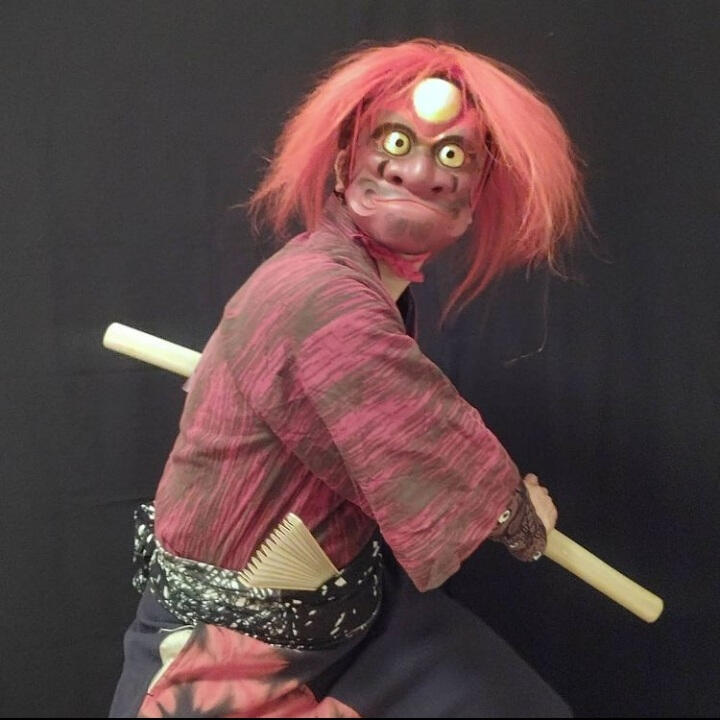
IMA- AMI 新阿弥
In recent years, classical performing arts such as Kyogen and Noh can only be introduced to families related to Kyogen. IMA-AMI thinks it's often perceived that the threshold is high.
It is undeniable that the family is responsible for inheriting the time-honored tradition, such as the hereditary system. However, there are many areas where folk performing arts are not hereditary but are carried on by people who live in the area. Many performing arts are concerned about future leaders and training.At IMA-AMI, anyone interested in traditional performing arts is welcome to participate. IMA-AMI aims to create a traditional performing art with everyone and become a bridge between the region and traditional performing arts.
Kyogen 狂言
Kyogen is a form of traditional Japanese comic theater that originated alongside Noh drama.
It features short, humorous plays often depicting scenes from daily life or satirical sketches.Ethnopunk has directly collaborated with Kyogen performing groups and
actively participates in activities aimed at promoting and enriching the art form.Saga Kyogen Kyoto, Arashiyama
Enmado Kyogen Kyoto, Kamigyo
Ima-ami Kyogen Kyoto, Haradani
COLLABORATIONS
Here, we provide further insight into our recent collaborations, projects, and innovative artistic concepts. Discover the artists collaborating with Ethnopunk and witness how their distinct visions seamlessly intertwine with ours, leading to new paths of expression and genuine artistic authenticity.
Japan, Hokkaido, 2019
India, Chennai, 2019
India, Kolkata, 2023
India, West Bengal, 2023
Europe, 2019
Japan, Kyoto, 2024
Taal Tantra
Taal Tantra, founded by renowned tabla player Tanmoy Bose, is an Indian band celebrated for blending traditional Indian music with Western styles, jazz, and modern sounds, creating exciting combinations in a beautiful atmosphere of sounds. Their formation juxtaposes the West with the East, the spiritual with the physical, and the immediate with the carefully meditated, resulting in an eruptively rhythmical and sensually harmonic experience. With elements like polyrhythmic scat-vocals and suspenseful grooves, Taal Tantra's music is a fusion of various instruments and styles, including guitar, bass, keyboards, flutes, drums, percussions, violin, and folk drumming. Their compositions traverse through a multitude of moods, styles, and modes, highlighting a shared plateau for the exchange of ideas, thoughts, and emotions on an intuitive and wordless level. Tanmoy Bose's visionary leadership and tabla expertise have played a pivotal role in shaping the distinctive musical identity and captivating performances of Taal Tantra. Ethnopunk has also had special collaborations with Taal Tantra, performing at prestigious venues such as Kolkata's Calcutta Club Ltd and ITC Royal Bengal.
Collaboration between Taal Tantra and Ethnopunk:04/03/23 in India, Kolkata, at the Calcutta Club Ltd, Taal Tantra, featuring Ethnopunk
16/02/23 in India, Kolkata, at the ITC Royal Bengal, Taal Tantra, featuring Ethnopunk
Vikku Vinayakram
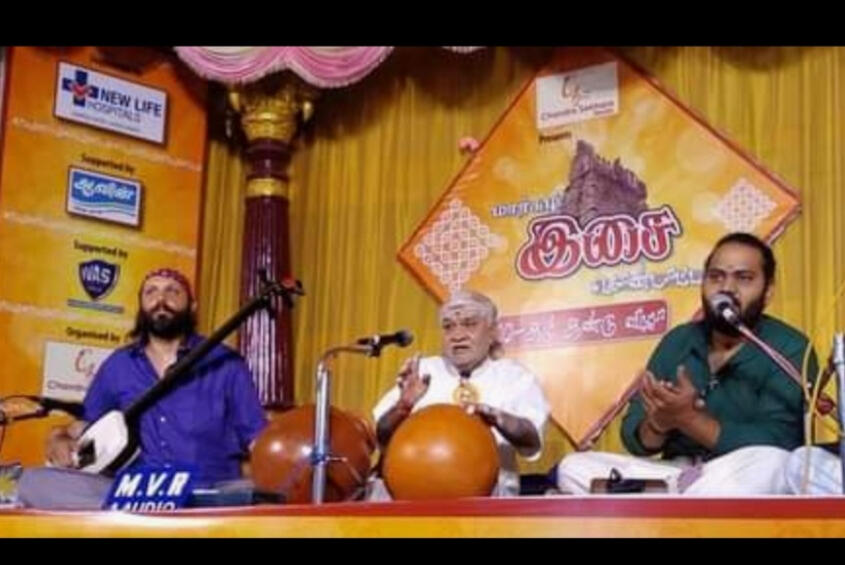
Vikku Vinayakram, the Grammy-winning Indian percussionist, is celebrated for his mastery of the ghatam in Carnatic music. From his early years as a prodigy to his global acclaim with Shakti, Vikku's performances and mentorship have garnered him prestigious awards, including the Padma Shri. His philanthropy, like donating Grammy proceeds, underscores his commitment to music and humanitarian causes.Sharing the stage with the legendary Vikku Vinayakram and his family in Chennai, performing in front of a local audience, was an unforgettable experience for MK, marking it as one of the highlights in MK's musical career.
Bauls and Fakhirs
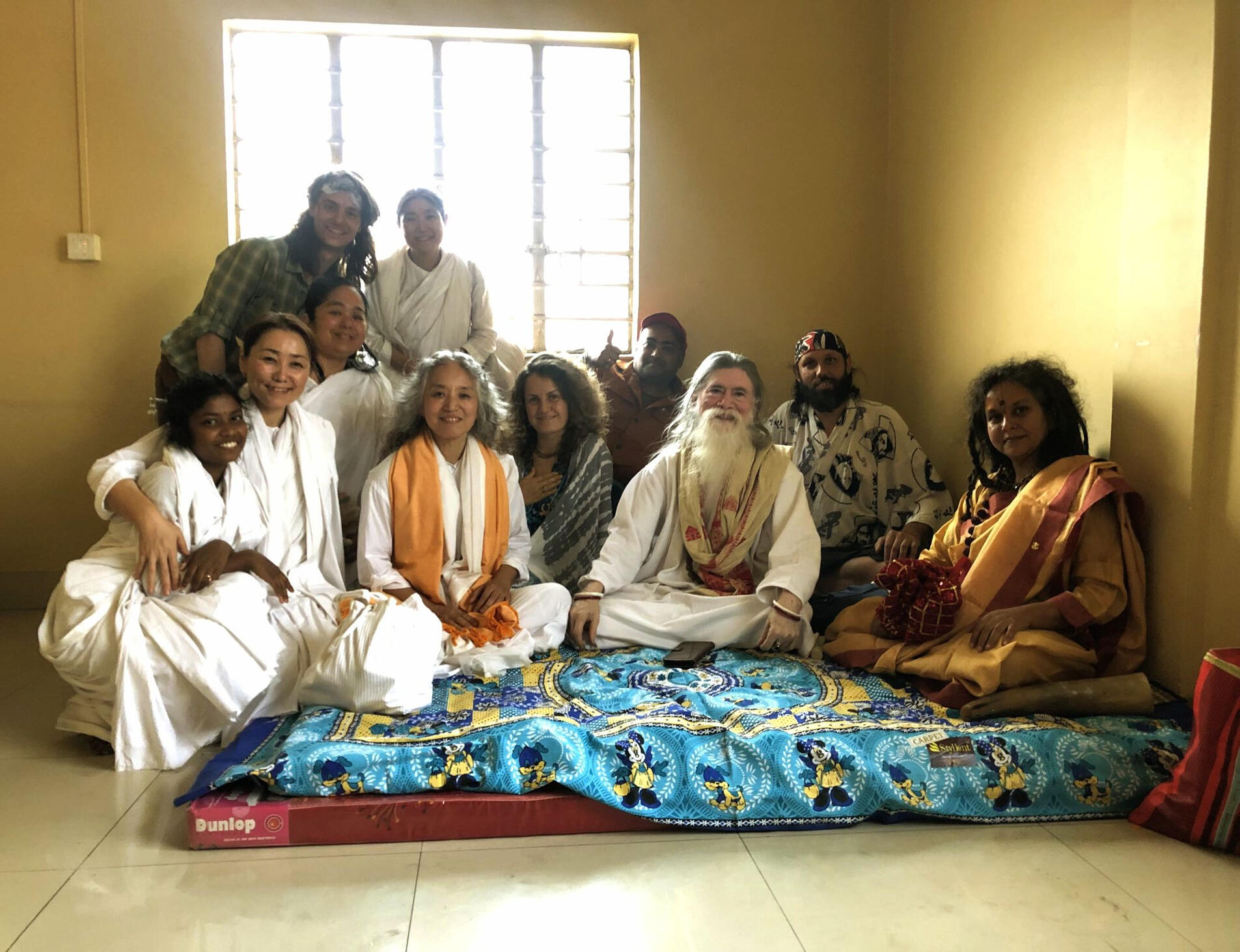
India, West Bengal, Arambagh, Bardhaman 2023
The Bauls and Fakirs of West Bengal are integral to the region's rich cultural heritage. Bauls, mystic minstrels, merge elements of Hinduism, Sufism, and Buddhism in their distinctive spiritual tradition, crafting music with profound philosophical lyrics exploring themes of love and spirituality. Similarly, Fakirs, ascetic Muslim musicians, use music as a conduit for spiritual expression and connection to the divine. Both groups significantly contribute to West Bengal's cultural landscape, captivating audiences with soul-stirring performances and profound spiritual insights.Ethnopunk had the honor of performing with Bauls and Fakirs at a prestigious Baul Mela music festival in Arambagh in 2023. Furthermore, MK and Hari embarked on a journey to various Baul Ashrams across West Bengal, fully immersing themselves in the culture, learning, and collaborating with local musicians.
The Jugalbandi
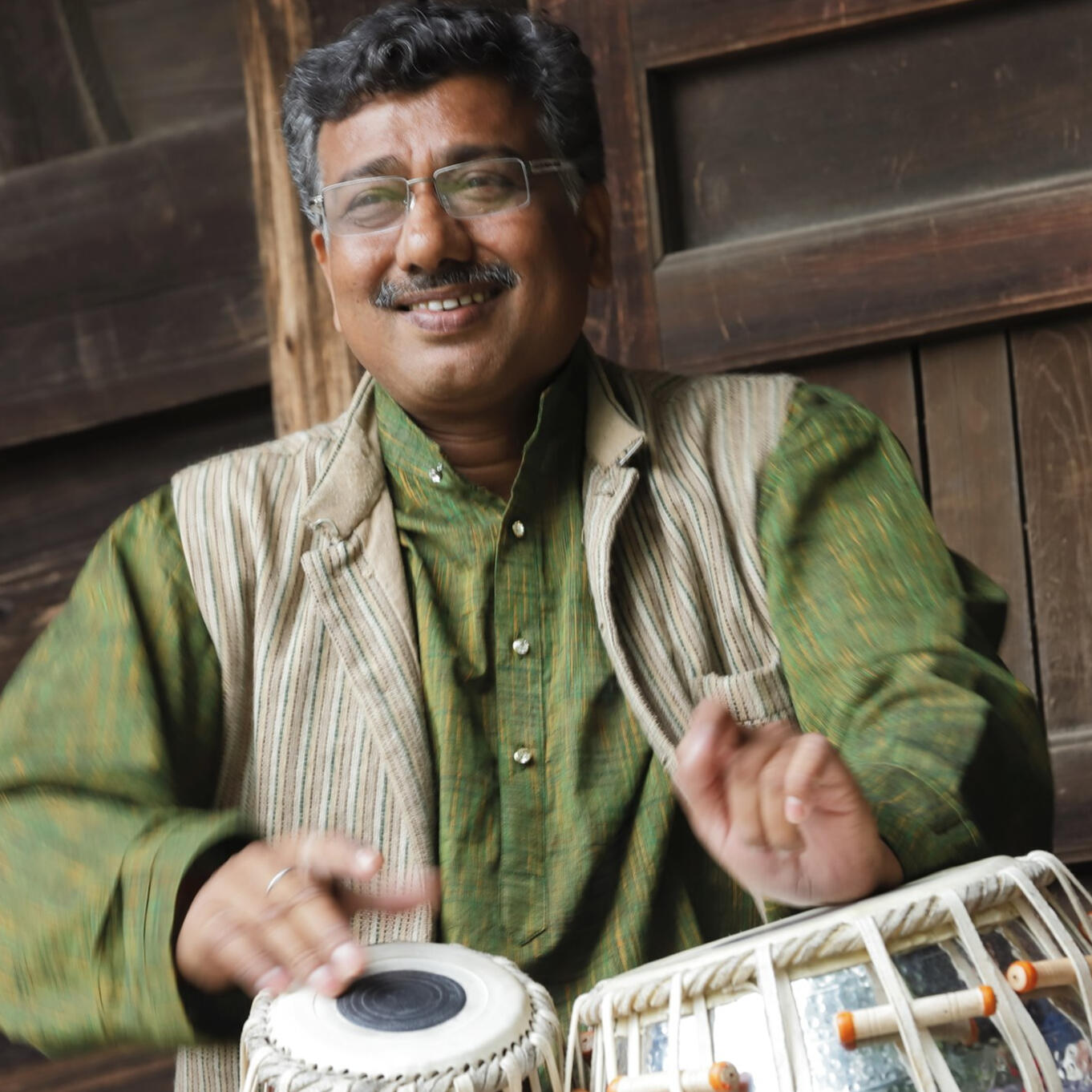
The Jugalbandi Japan Tour Tokyo, Yokohama, Kyoto, 2018, 2019
Jugalbandi EU Tour France, Holland, Czech Republic, Slovakia, 2019
Tabla Tansen is a versatile percussionist, tabla guru, rhythm composer, and music director renowned for his ability to convey a wide array of human emotions through his tabla playing. He is celebrated for his percussion band "LAYAYATRA," a prominent fixture in the world of percussion, as well as his collaborations with international bands for fusion music. Tansen's innovative compositions, marked by their intricacy and complexity, have earned acclaim from music critics nationwide. With performances on international stages across Asia and Europe, Tansen has showcased his talent to audiences worldwide.In recent years, he has collaborated extensively with Ethnopunk, culminating in the formation of the group The Jugalbandi, which has performed in Europe, India, and Japan.
Ainu Art Project
The Ainu are an indigenous people of Japan, primarily inhabiting the northern regions of Hokkaido, the northernmost island of Japan, as well as parts of the adjacent regions of the Russian Far East, particularly Sakhalin and the Kuril Islands. They have a distinct culture, language, and history separate from the majority Japanese population.The Ainu have a rich cultural heritage that includes unique traditions, folklore, music, dance, clothing, and spiritual beliefs. Traditionally, they practiced hunting, fishing, and gathering as their primary means of subsistence. Their spiritual beliefs are animistic, centering on the belief that all natural phenomena, such as animals, plants, and geographical features, possess spirits.
Ainu Art Project and Ethnopunk
Collaboration performances
Sapporo, 2019
Yokohama, 2017, 2018
Japan
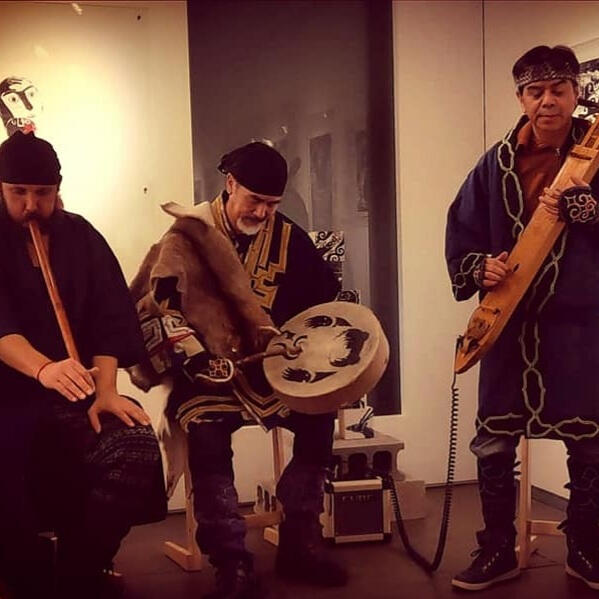
Leader: Yuki Kouji
Tonkori: Hiromi Fukumoto
Ethnopunk has partnered with the Ainu Art Project to collaborate and experiment with Ainu music, Slavic music, and other world music styles. Together, they are creating new and authentic expressions within these traditions through their collaborative efforts.
Ainu Woodblock print crafts
Artist: Yuki Kouji 結城幸司
Sapporo, Hokkaido
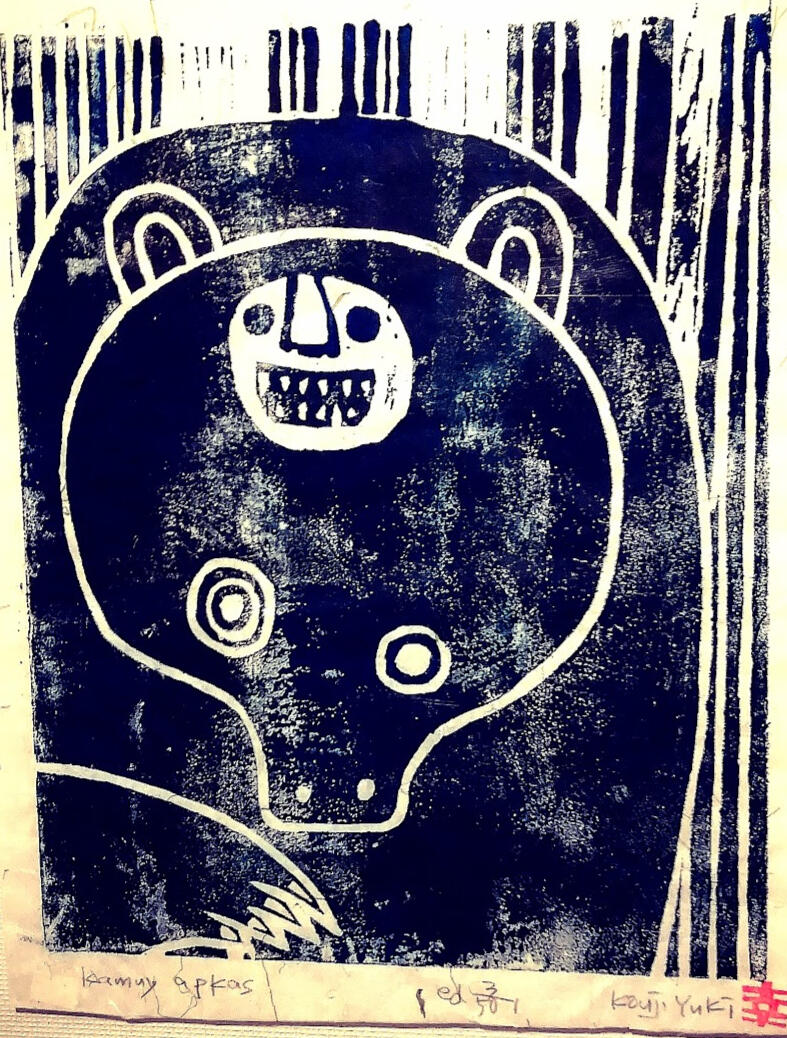
Explore Ainu Woodblock Prints:
Discover the beautiful artwork and traditional techniques passed down through generations by skilled Ainu craftsmen. Learn more about the materials, methods, and stories behind each piece.
Kami
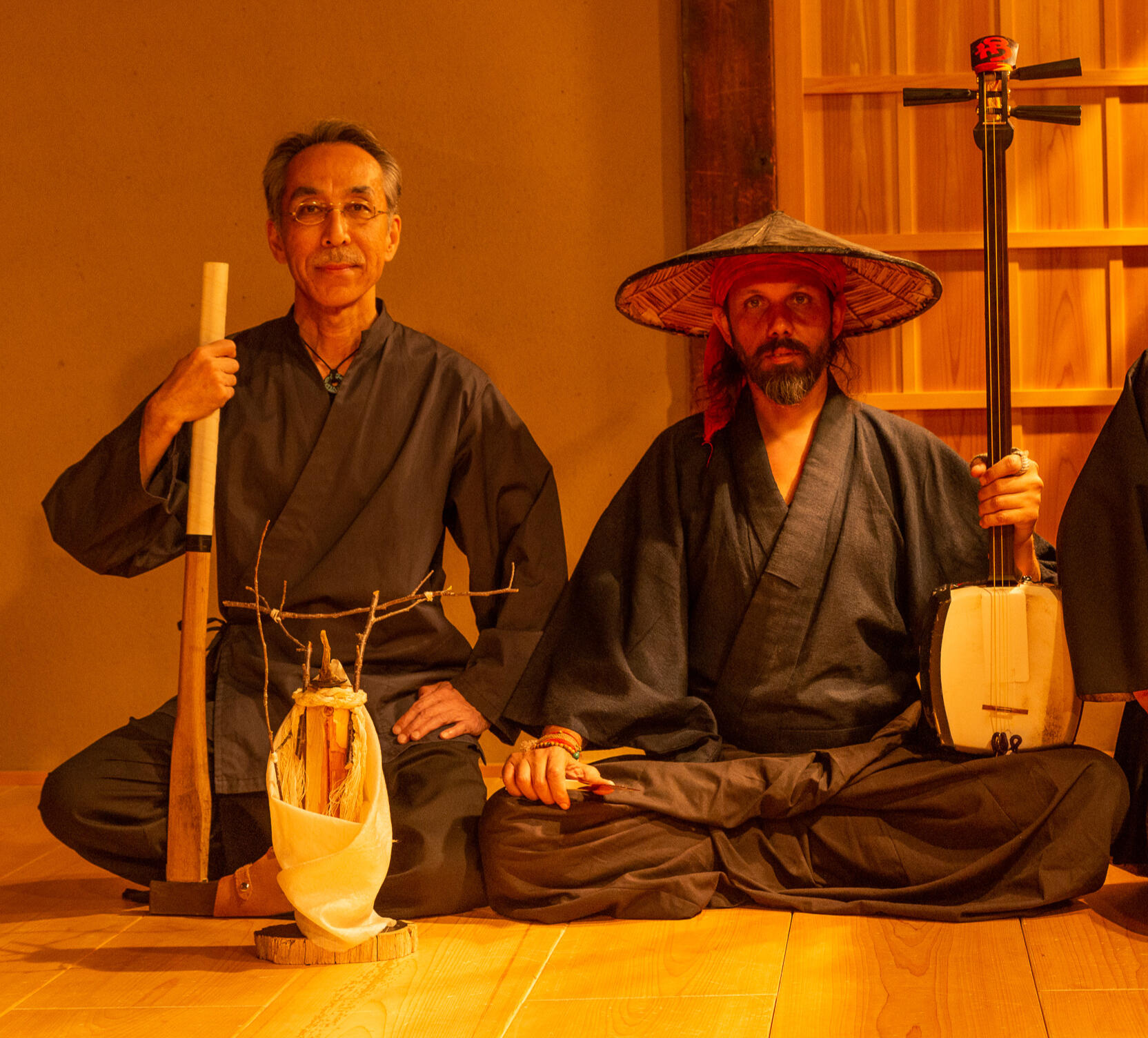
Introducing a new collaboration with Kazuyuki Sanda, an artist and sculptor based in Kyoto. Experience improvisational performances that harmonize ancient frequencies with the serenity of nature: forests, woodlands, and the spirit of Kami. Embrace the spontaneity of the moment, the power of now, and the art of letting go allowing natural forces to shape creativity.
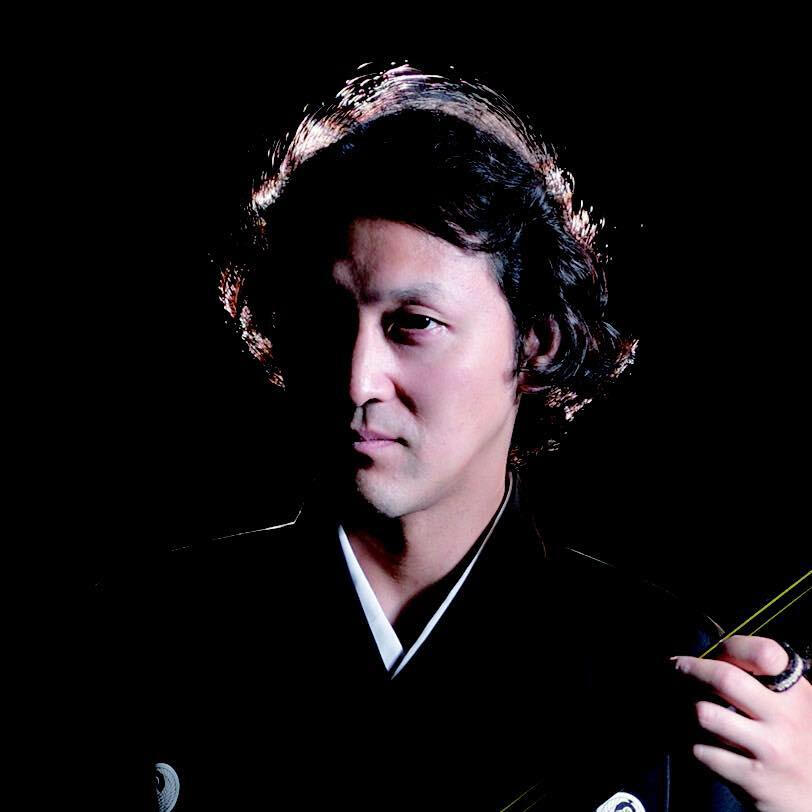
KOJIN SASAKAWA
Tsugaru shamisen
Hirosaki Aomori
shamisen master
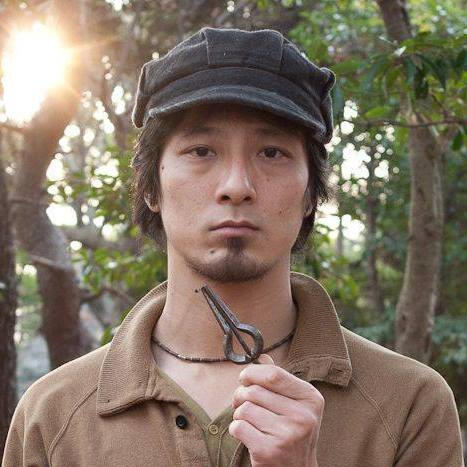
KOICHI TAKEHARA
Instructor at VSSP
Carnatic percussions
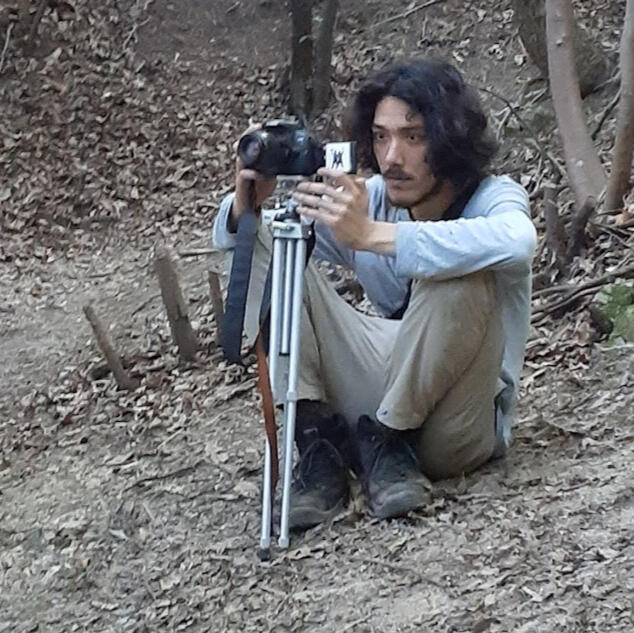
HIDE HEDRA
photography
multimedia, painting
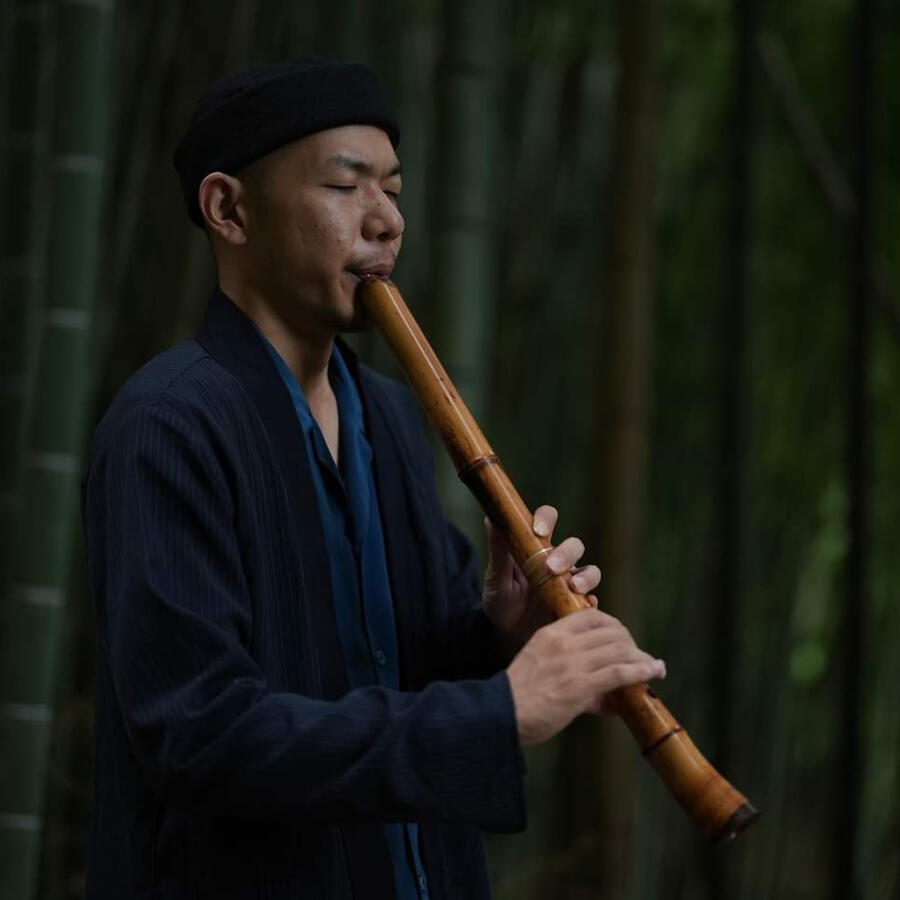
NUMABARA
Shakuhachi
HipHop
Noh-mask maker
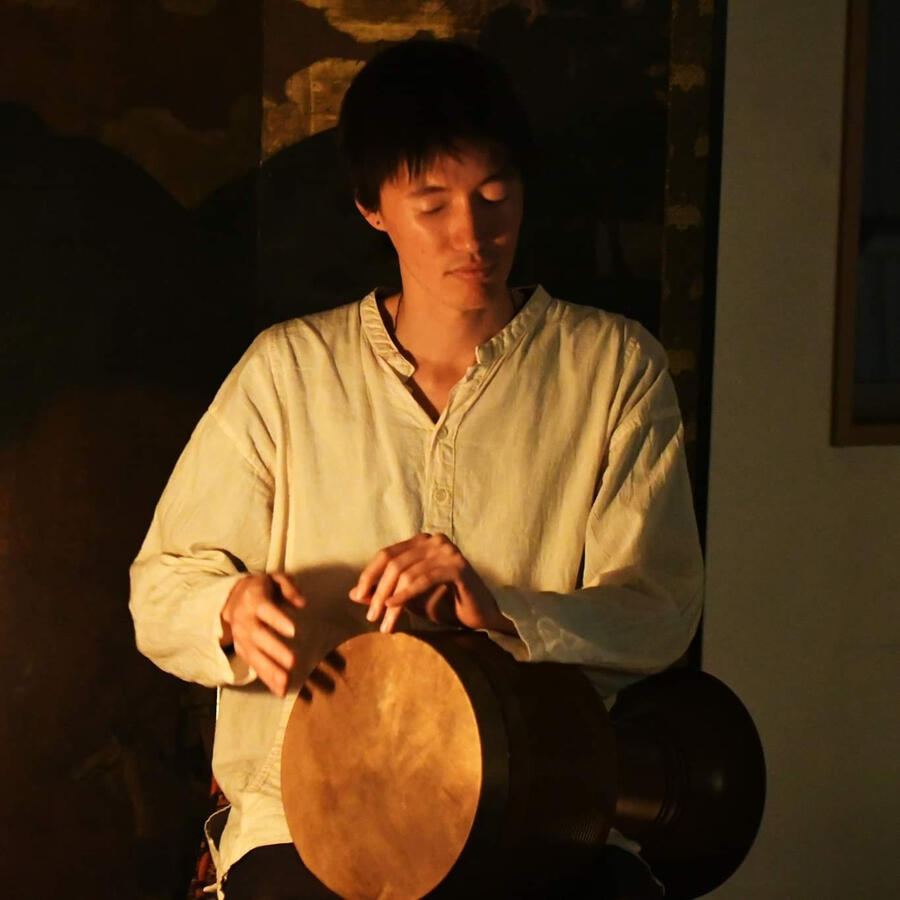
LEO SAI
Persian percussion
tombak, daf
frame drums
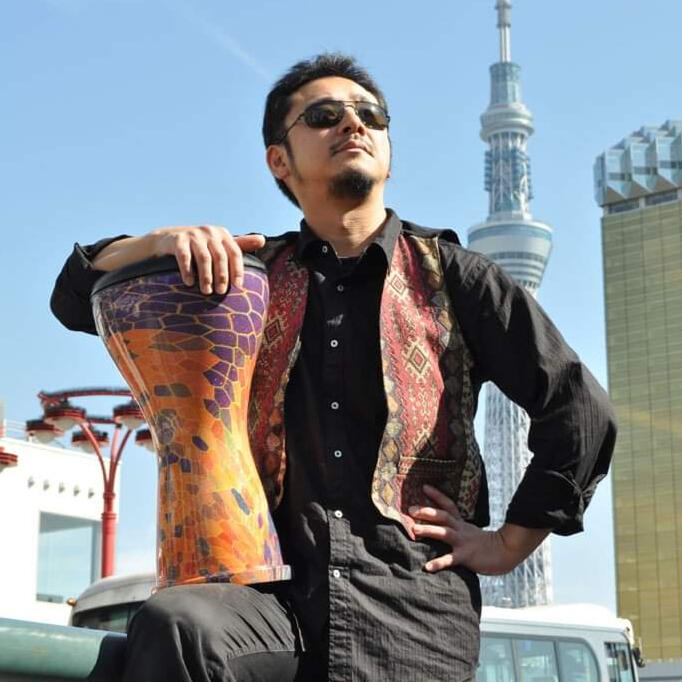
JUNZO TATEIWA
percussion
frame drums
Indian tabla
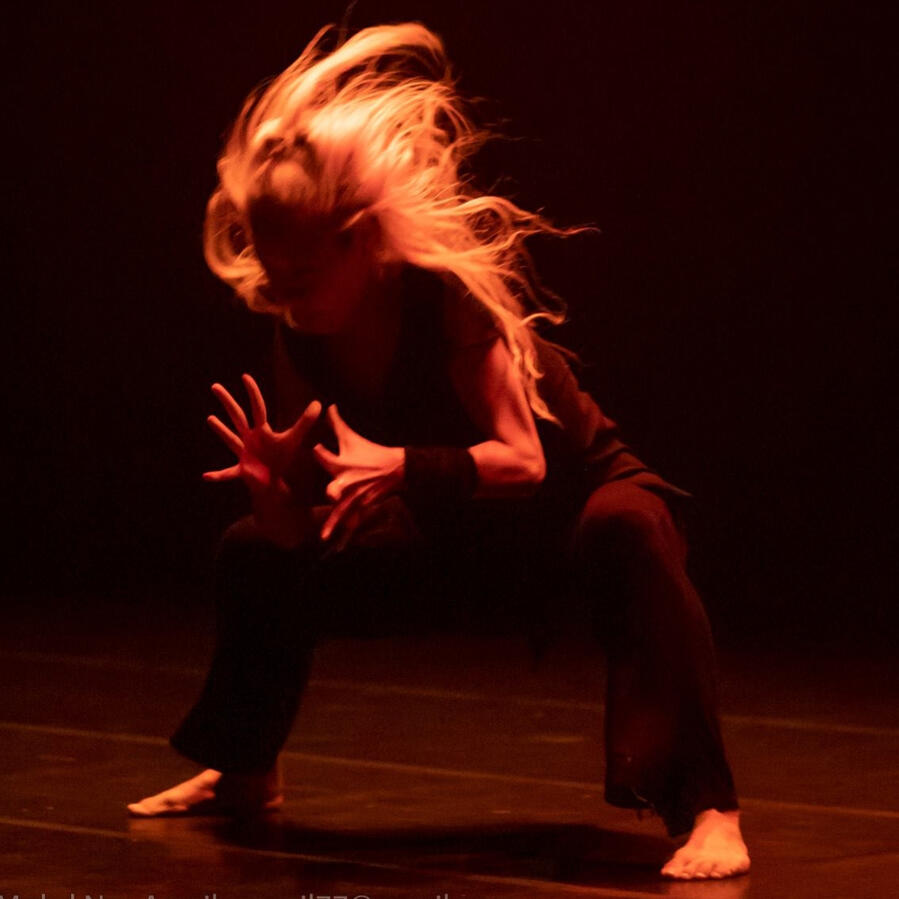
Pei Ern
Independent
Contemporary dance Artist
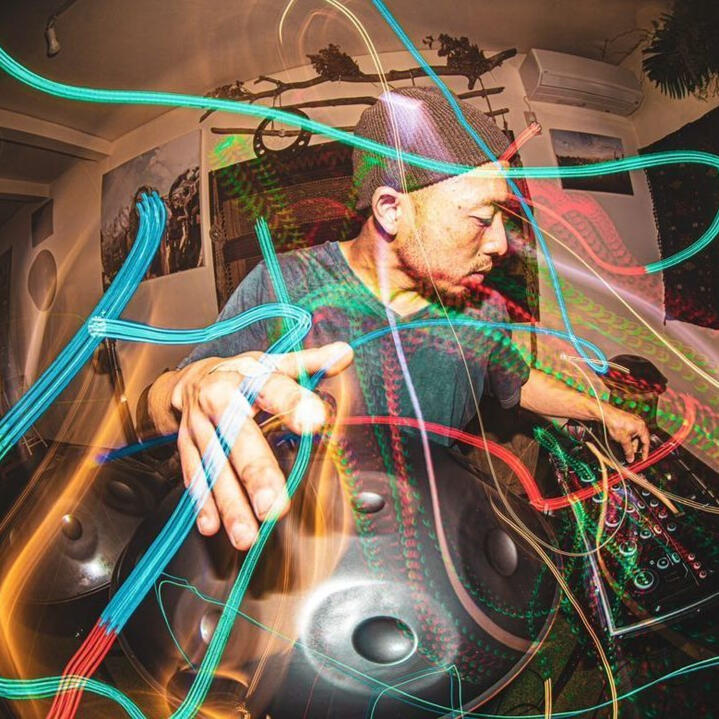
KOJI KOSE
handpan
electronic music
ethnic instruments
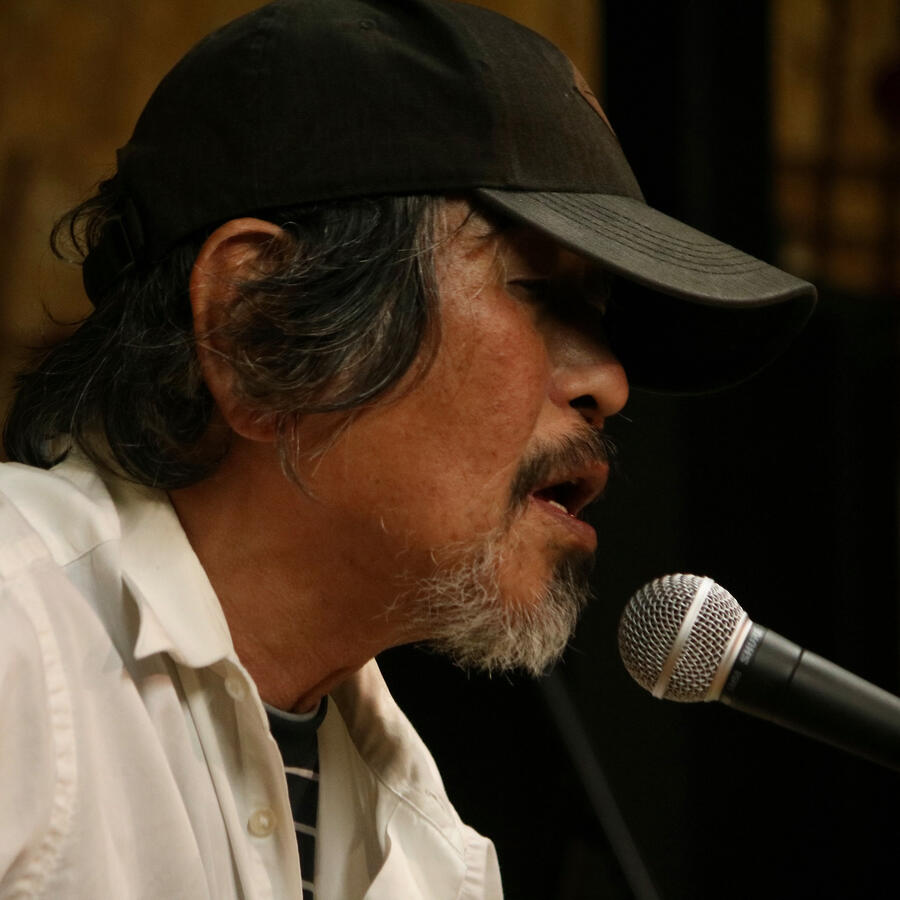
HIGASHI HIPPIE
folk singer and songwriter
hippie
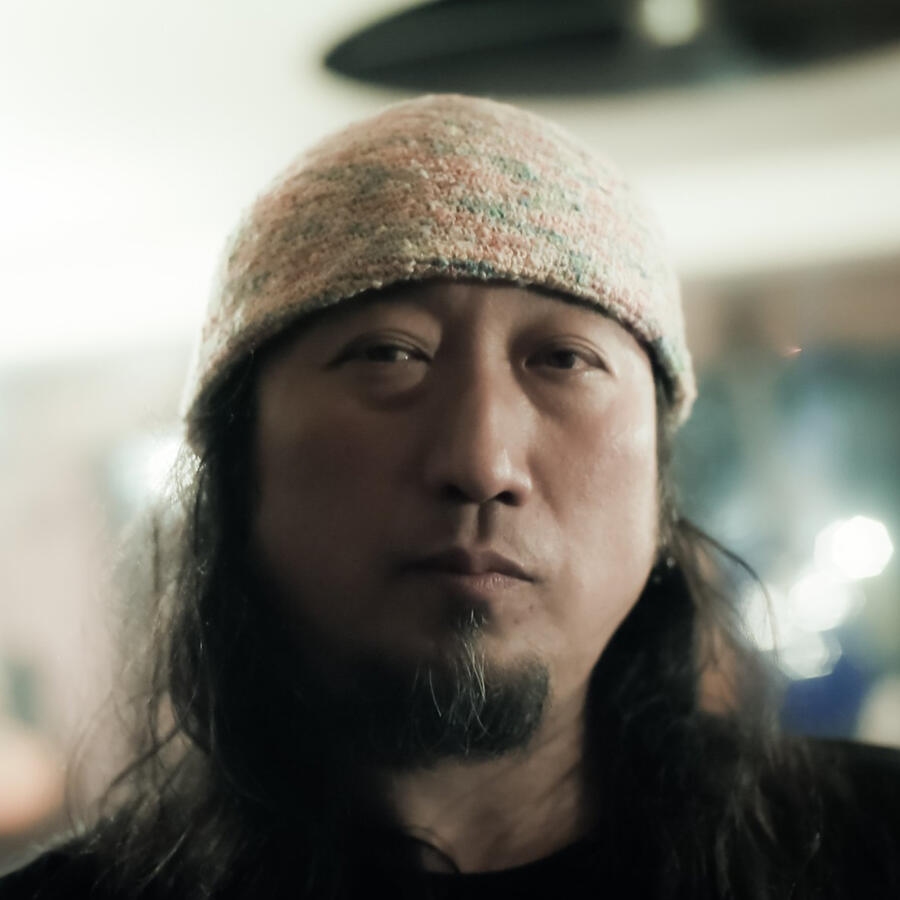
ITSUTO OSAWA
electric bass
mongol bass
kontrabass
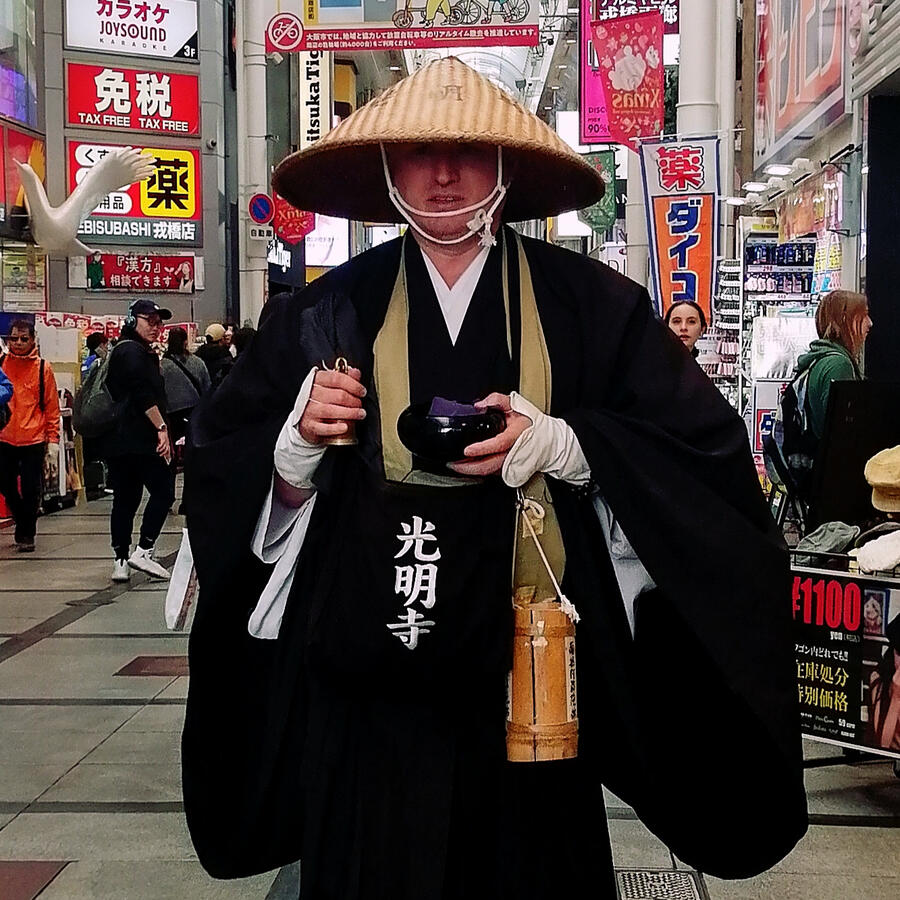
JONEN
Jodo Shu Priest
walking pilgrim
shakuhachi player
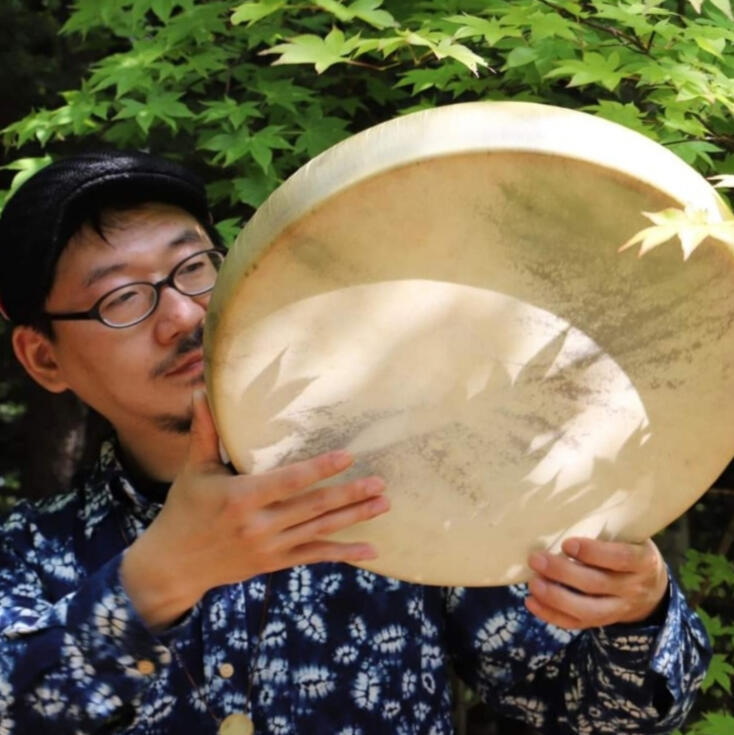
YUZO HISADA
percussions
frame drums
jews harp
